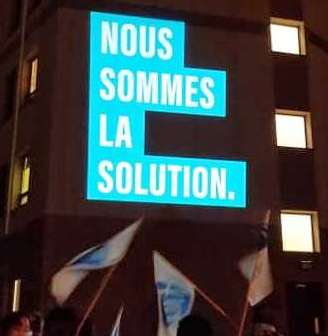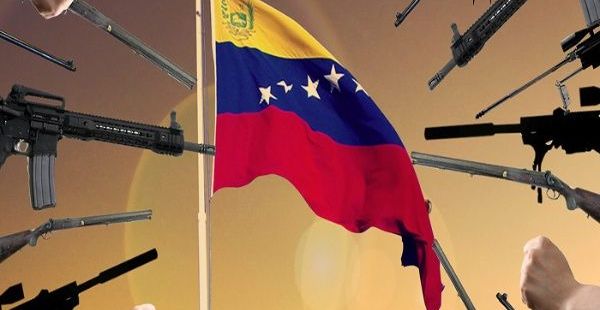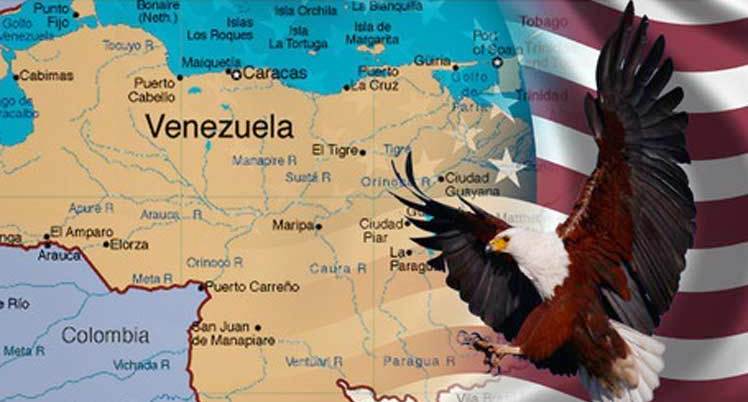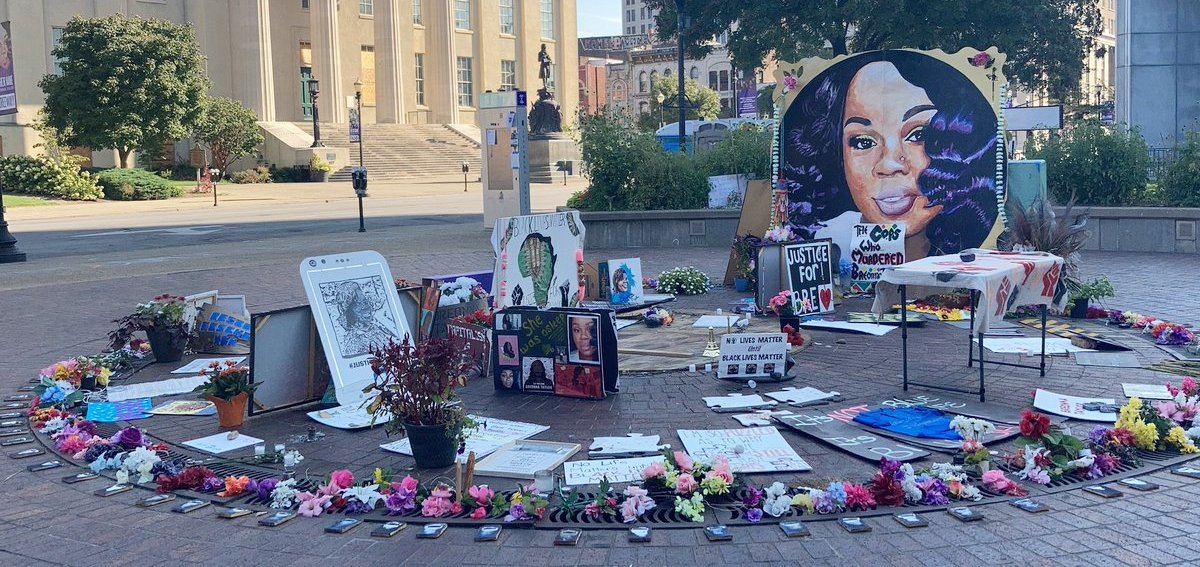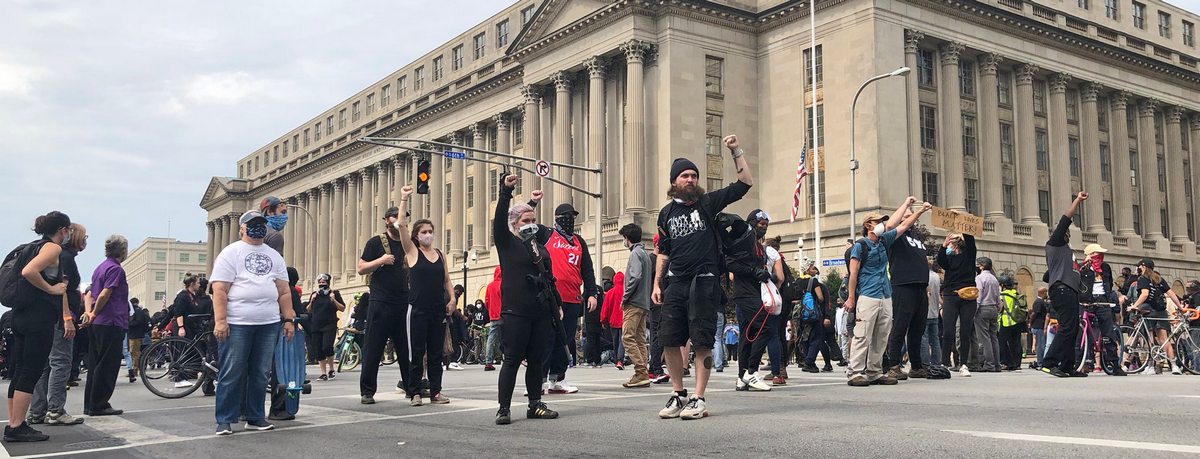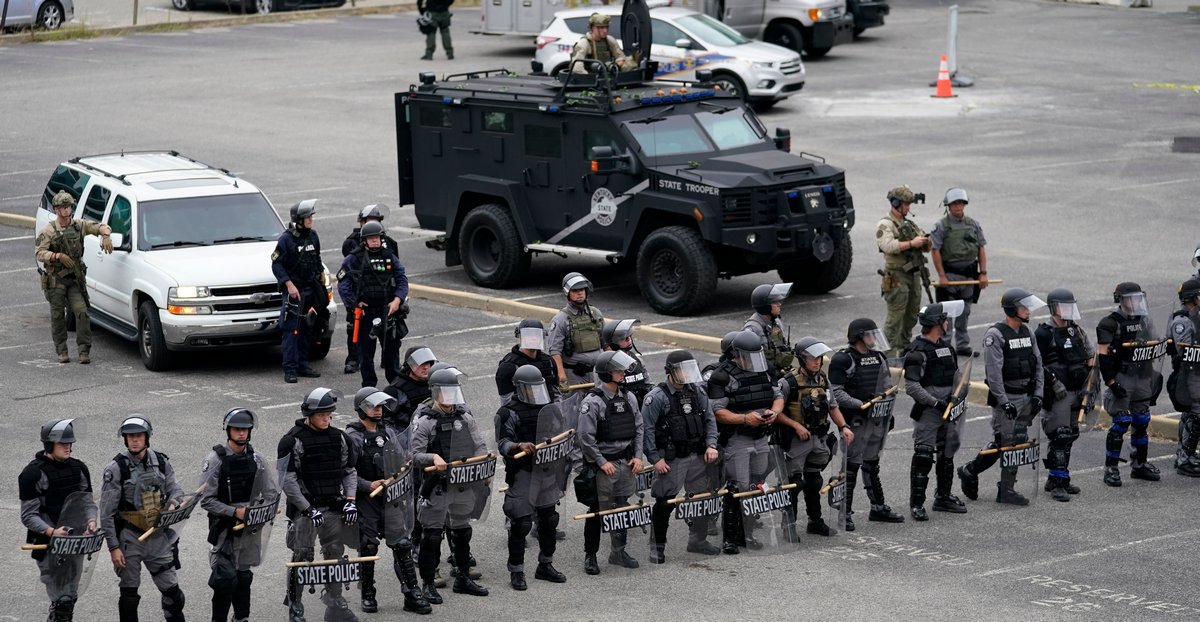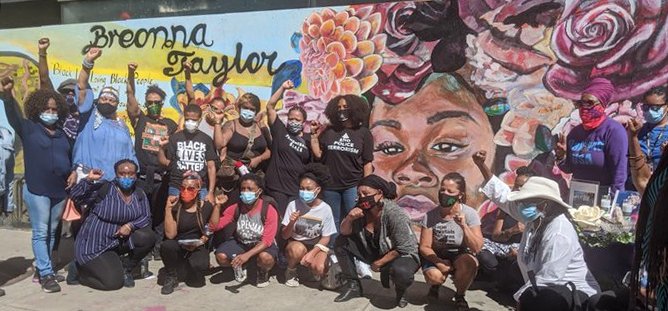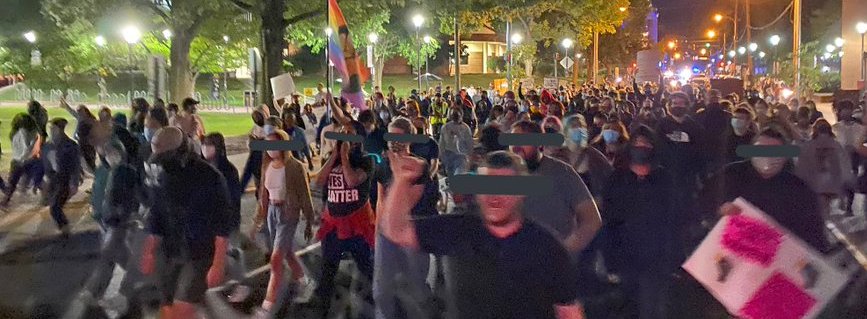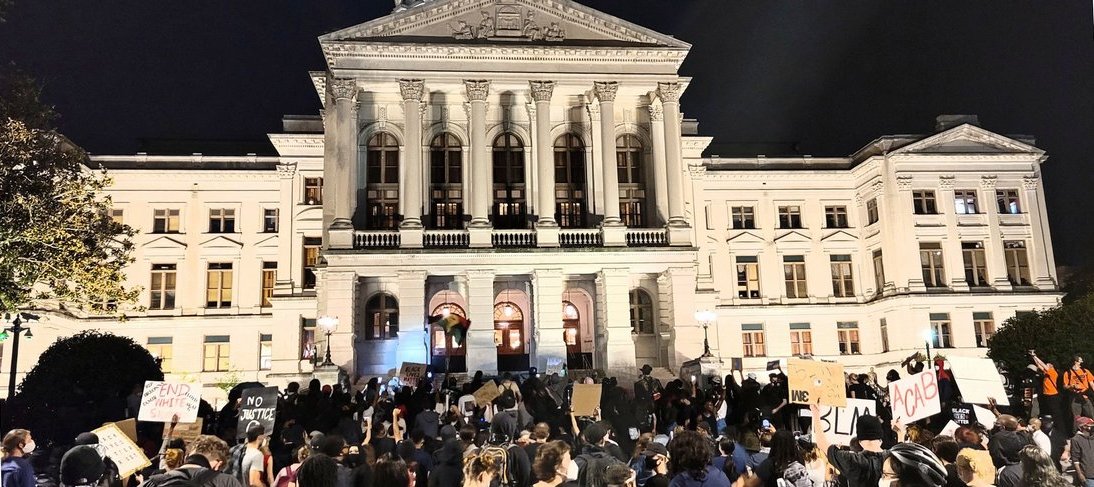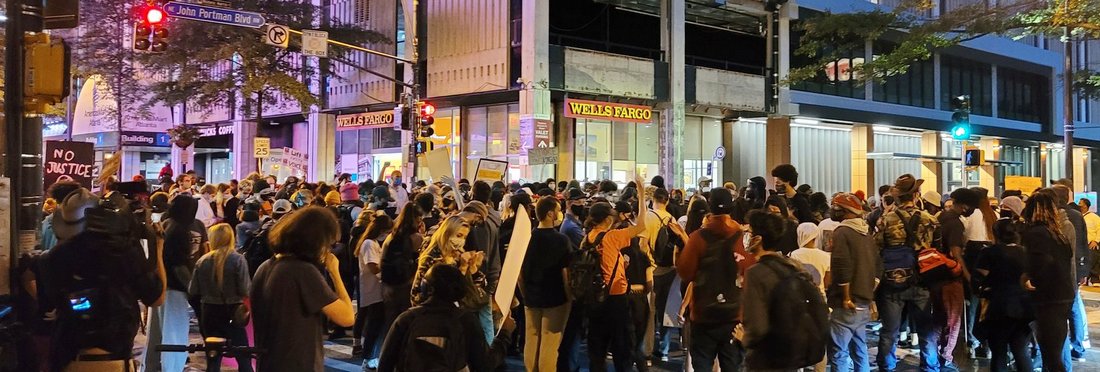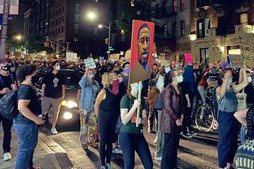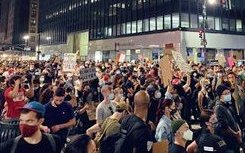
| September 26, 2020 - No. 36 Trudeau Government's Throne Speech |
|
British Columbia
People of BC Left Out of Election Decision
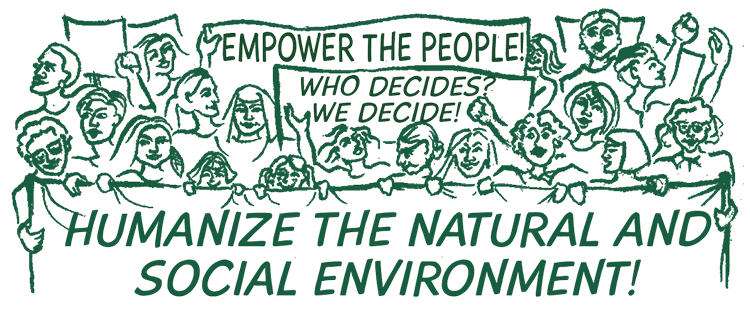
The essence of the cartel party political system in Canada is that the people are alienated from any decision-making about the economy, politics and other issues that affect their lives, other than casting a vote every few years. The cartel parties control the process and collude to keep the people out. A glaring example of this is the recent decision by the minority NDP government of BC to call a provincial election despite near universal opposition.
The current breakdown in the BC Legislature is: NDP, 41; Liberal, 41; Green Party, two; Independents, two; and one seat vacant. Up until now, this minority government has been propped up by a Supply and Confidence Agreement that was negotiated between the NDP and the Green Party following the 2017 election. In this signed, power-sharing agreement, the NDP promised to wait until October 16, 2021 before holding another election, which was in accordance with BC's fixed election law.
However, on September 21, NDP Premier John Horgan reneged on the agreement and, after getting approval from the Lieutenant-Governor of the province, scheduled the next election for October 24, a year ahead of the previously agreed upon date. In his announcement, Horgan said he "struggled" with the decision, but the province was only at the beginning of the COVID-19 pandemic and holding off the election would "create uncertainty and instability over the next 12 months." According to him, "contempt" and "acrimony" between the parties would take away from dealing with the pandemic. According to him, "the best way forward is to put the politics behind us." All of this was said just days after the Premier acknowledged that, over the previous few months, there has been "extraordinary co-operation between Health Minister Adrian Dix and the opposition parties when it comes to tackling COVID-19."
Horgan's announcement was met with sharp criticism from the BC Liberals and Greens, as well as a host of media pundits and election observers. There have also been media reports of NDP supporters opposing the election call and that most party members, with the exception of a few top officials, were kept out of the conversation about launching an election.
Horgan said that the deciding issue for him in calling the election was the opposition by Green Party MLAs to two government bills put forward during the summer. The first bill would have allowed for the short-term detention of young people who had overdosed on drugs, and the second would have increased the amount of cheap electricity that BC Hydro is allowed to purchase in the U.S.
Green Party MLA Sonia Furstenau, who became party leader just a few days ago, disagreed with Horgan's assessment. She commented that since the beginning of the COVID-19 pandemic in the spring there has not been "instability" in government, but rather "a time of unbelievable cooperation and collaboration for the people of British Columbia."
She noted that there had been widespread criticism of the bill that would have detained young people after drug overdoses, including from the Chief Coroner, the independent Representative for Children and Youth, and the BC Civil Liberties Association. Indeed, in the face of this criticism, the bill was withdrawn by Mental Health and Addictions Minister Judy Darcy for more review.
In addition, there was opposition from Indigenous peoples to both the drug overdose bill and the BC Hydro bill on the grounds that, in both cases, the government had failed to consult them as laid out in the UN Declaration on the Rights of Indigenous Peoples.
According to Furstenau, the BC Greens had adhered to every part of the power-sharing agreement, including voting with the government on all budget and confidence bills. "But what that agreement didn't stipulate," she said, "was total obedience to the NDP." In her opinion, Horgan has "chosen the pursuit of power over the health and safety of British Columbians."
For his part, BC Liberal leader Andrew Wilkinson called the election unnecessary and a "cynical, self-serving, selfish move" on the part of the NDP government. "What kind of person does that, in the middle of a pandemic, rip up a deal that would have led to stable government for the next year? Who would do that?" he asked, adding "And the answer is John Horgan and the NDP."
Opposition criticism aside, however, there is a larger problem. Under the current cartel party system, the parties in the federal parliament and provincial legislatures regularly put their own interests first and leave the people in the dust. There are many other examples of federal and provincial governments, in BC and elsewhere, launching similar surprise attacks on voters.
So, why is the BC government ramming through this election in the midst of a pandemic which could be going into a ramped up "second wave" this fall? Is it really about having a "stable" government during these troubled times that can provide good governance for the province? Or are there more opportunistic reasons?
For example, having the election now favours the NDP's election prospects. According to a recent poll, the NDP is ahead of the Opposition Liberals by 19 per cent. Furthermore, the new leader of the BC Greens was elected to the office only a few days ago which, according to some, puts the party at a disadvantage to the NDP which covets the Green seats on Vancouver Island.
Then there is the economic situation. According to the government's most recent economic outlook, there will be an economic decline of 6.7 per cent this year and a deficit that will climb to $12.8 billion. Does the government anticipate a worsening economy in the coming year and thus less favourable electoral conditions?
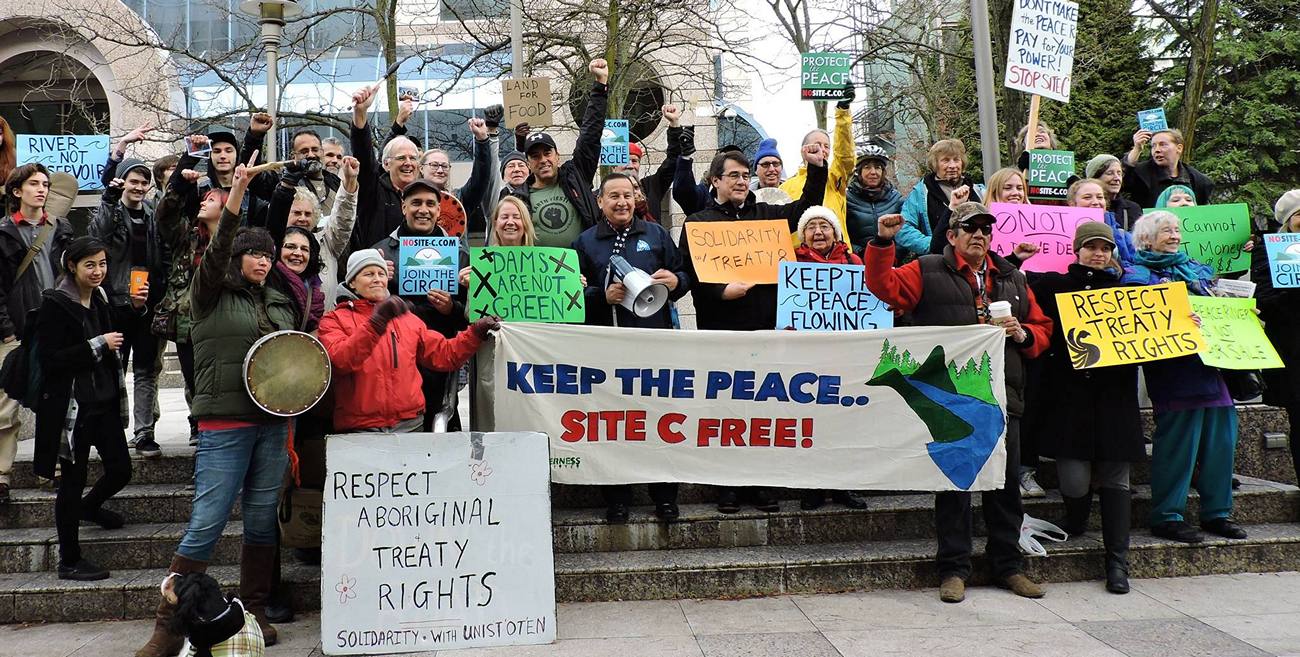
One of many protests
against construction of Site C dam, at court hearing in February 2016.
And the future of the Site C dam on the Peace River in northeastern BC could be a huge problem in the year ahead. The project, which has been severely criticized by a variety of experts and opposed by many in the area and throughout the province, is expected to be billions of dollars over budget. Reports are coming out that the foundations of the dam itself are unstable and possibly unrepairable. The government could be faced with a vastly over-budget project or, on the other hand, an outright cancellation of the dam -- which would mean a loss of the billions of public dollars already spent on it.
In any case, all of this brings to the fore the question: Who decides what happens in the political, economic and social affairs of the province -- the people of BC or the cartel political parties? This question haunts the upcoming election.
(With files from the Vancouver Sun, The Tyee, Macleans, Times Colonist, and Globe and Mail. Photos and graphics: TML, R. Hales)
Resistance Growing to
Deteriorating Living
and Social Conditions

Homeless encampment in
Strathcona Park.
People
facing civil death and their allies in BC demand real solutions
to the crisis of poverty, not police attacks and empty rhetoric
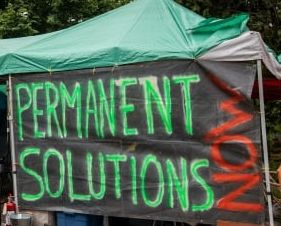 Unemployment and
poverty have become even more acute during the current pandemic and
economic crisis. Visible signs of poverty have grown in cities
throughout BC. People unable to pay rent are living in RVs, vans, cars,
tents or without any shelter.
Unemployment and
poverty have become even more acute during the current pandemic and
economic crisis. Visible signs of poverty have grown in cities
throughout BC. People unable to pay rent are living in RVs, vans, cars,
tents or without any shelter.
The state through its governments, police and courts is increasingly using state-sanctioned powers to criminalize poverty and attack those facing civil death who shelter in public spaces. Rather than uphold its social responsibility toward members of society, the state is attacking the people who have fallen into poverty for whatever reason. Last year hundreds of homeless people in downtown Vancouver gathered together to build a tent city in Oppenheimer Park. They have become a target of police powers, are continually being forced to move their encampment, and have suffered multiple arrests.
From Oppenheimer to Crab Park
After the pandemic struck, instead of upholding its social responsibilities towards the people and finding solutions to poverty and homelessness, the province used its police powers under the Emergency Program Act and the ongoing provincial state of emergency to clear Oppenheimer Park of all tents and their inhabitants in early May. Many of those displaced moved to deserted federal land near Crab Park on the city's waterfront. The federal government immediately sought and received a court injunction to remove the campers. Police moved against them in early June arresting and charging 45 campers with violating the injunction, while others left the area before the police attacked.
In a further vindictive move, the Vancouver Fraser Port Authority sought a court order to force the BC Prosecution Service, on behalf of the Attorney-General, to review the charges and determine whether those arrested should be prosecuted for criminal contempt of court instead of the court making a finding of the lesser offence of civil contempt of court.
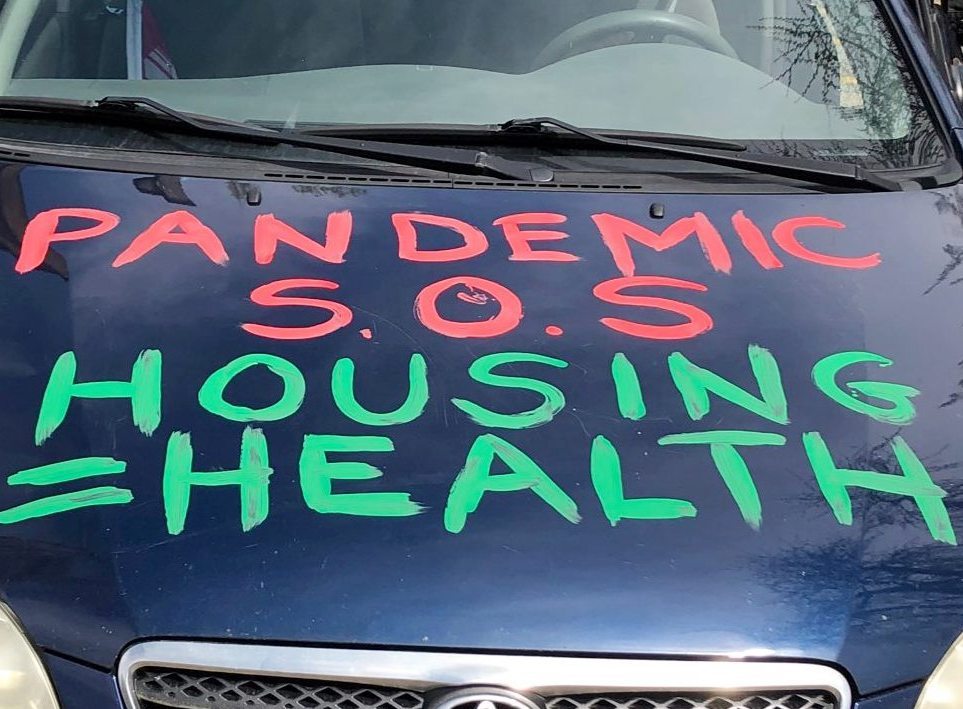 Chief Justice
Christopher Hinkson, who imposed the injunction in the first place, on
September 14 sided with the federal port authority and ordered that 11
of the charges be sent to the BC Attorney-General for review and
possible criminal prosecution, while the rest face civil contempt
charges. Hinkson said he wants people to grasp "the need for orders of
this court to be enforced in order to uphold its dignity and the rule
of law."
Chief Justice
Christopher Hinkson, who imposed the injunction in the first place, on
September 14 sided with the federal port authority and ordered that 11
of the charges be sent to the BC Attorney-General for review and
possible criminal prosecution, while the rest face civil contempt
charges. Hinkson said he wants people to grasp "the need for orders of
this court to be enforced in order to uphold its dignity and the rule
of law."
In his ruling, Hinkson quoted a decision written by Beverley McLachlin when she was Chief Justice of the Supreme Court of Canada: "The rule of law is at the heart of our society; without it there can be neither peace nor order nor good government. The rule of law is directly dependent on the ability of the courts to enforce their process and maintain their dignity and respect."
Hinkson said, "It is not for me to say whether or not a criminal prosecution of the defendants is a wise or unwise use of public resources, but I anticipate that the attorney general will weigh that matter against the importance of the rule of law in our democratic society."
In an article in the Province entitled "BC's top trial judge fed up with protesters ignoring court orders," Ian Mulgrew wrote regarding the ruling, "Hinkson appeared to be reacting to a year of protest, with disruptions from the Wet'suwet'en blockades to the Trans Mountain Pipeline demonstrations.... Those who would endorse Indigenous blockades, tent cities and other civil disobedience had better take note -- BC's top trial judge is not amused."
Responding to Hinkson's order, lawyers for the homeless campers and their allies denounced the decision saying it "could mean significantly increased punishment." Surrey lawyer Amandeep Singh said, "Here are the most disadvantaged people in society, in the middle of a pandemic, trying to make homes on what was essentially an empty parking lot. Why are they being punished?"
Back in 2018, the BC Prosecution Service agreed with the same court's call for criminal prosecution of those who defied a Trans Mountain Pipeline injunction against demonstrating in opposition to the pipeline's construction. The court found four demonstrators guilty of criminal contempt and sentenced them to 14 days in jail, giving them a criminal record. The judge at the time warned that members of the public "who may be tempted to pick and choose the court orders that they will obey, either in this situation, or in others, must be deterred from flouting orders of the court."
Whose
Economy? Our Economy!
Whose Society? Our Society! Who
Decides? We Decide!
The attacks on the homeless and their allies and their criminalization through court injunctions and the rule of law raise basic questions of the role of the state and its relation to the people. The justices speak of the rule of law and democratic order as abstractions without consideration of the concrete conditions. They do not connect their rulings and musings with the social conditions of the people and in this case with those facing civil death.
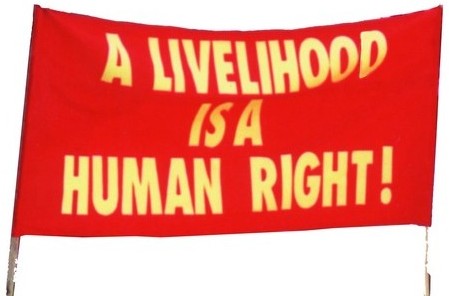 Poverty and
unemployment are constant features in Canada. They form part of the
social conditions that people have to confront, not in the abstract,
but in reality. Many Canadians, both before and during economic crises,
face an absence of a means of subsistence. They cannot simply fashion
means of subsistence out of thin air. Means of subsistence are products
of the socialized economy, which is controlled by the global oligarchs.
If the economy cannot meet the needs of the people for means of
subsistence, what are the people to do? Some fall into drug and alcohol
abuse to ease the stress and pain of not having a means of subsistence;
a few may indulge in criminal activity to find some way of living,
while others soldier on as best they can, and some organize and unite
with fellow Canadians to fight for the rights of all and a new
direction for the economy.
Poverty and
unemployment are constant features in Canada. They form part of the
social conditions that people have to confront, not in the abstract,
but in reality. Many Canadians, both before and during economic crises,
face an absence of a means of subsistence. They cannot simply fashion
means of subsistence out of thin air. Means of subsistence are products
of the socialized economy, which is controlled by the global oligarchs.
If the economy cannot meet the needs of the people for means of
subsistence, what are the people to do? Some fall into drug and alcohol
abuse to ease the stress and pain of not having a means of subsistence;
a few may indulge in criminal activity to find some way of living,
while others soldier on as best they can, and some organize and unite
with fellow Canadians to fight for the rights of all and a new
direction for the economy.
The rule of law and democratic order as abstractions are of no use to those without a means of subsistence but become in fact a means of suppression which is used against them and others such as workers on strike who face injunctions making their picket lines in defence of their claims ineffective, or against those who feel strongly about an issue such as climate change, the Trans Mountain Pipeline and Indigenous rights.
The justices may present the rule of law and democratic order as abstractions that must be obeyed but in fact, as constituted today, they are not abstractions but concrete methods to deny the people their right to decide on matters that affect their lives, and to deprive them of their rights, including the basic right to be.
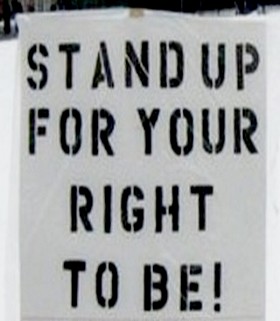 The abstract
words of the ruling elite calling for the people's obedience to the
rule of law and democratic order mask very real attacks on the rights
of all. The rule of law and democratic order as abstractions in the
mouths of the elite do not and cannot manufacture a means of
subsistence or a home but they do reflect real police powers to attack
the people. The abstractions do not solve problems between employees
and employers or other issues of human rights but the rule of law and
democratic order as presently constituted do interfere in a real way on
behalf of the rich and powerful in opposition to the people.
The abstract
words of the ruling elite calling for the people's obedience to the
rule of law and democratic order mask very real attacks on the rights
of all. The rule of law and democratic order as abstractions in the
mouths of the elite do not and cannot manufacture a means of
subsistence or a home but they do reflect real police powers to attack
the people. The abstractions do not solve problems between employees
and employers or other issues of human rights but the rule of law and
democratic order as presently constituted do interfere in a real way on
behalf of the rich and powerful in opposition to the people.
When the justices fling abstractions combined with real attacks on people facing real difficulties, or on those defending Indigenous rights, or on activists dealing with issues such as pipelines or homelessness, or on striking workers, then those who hold positions of power reveal themselves as apologists for a state that refuses to uphold its social responsibilities towards the people. This state has as its economic foundation a basic aim to pay the rich and has no intentions of finding solutions to the myriad problems the economy, people and society face.
The rule of law and democratic order presented as abstractions
by the rich and their political and legal representatives are real
attacks on the people and are an impediment to resolving problems, a
block to forcing the state to assume its social responsibilities and
for the people to find and implement a new direction for the economy
that stops paying the rich and puts an end to poverty and unemployment.
(Photos: TML, Strathcona Residents Assn., B.S. Waters)
Strathcona Neighbourhood Movement Speaks Out
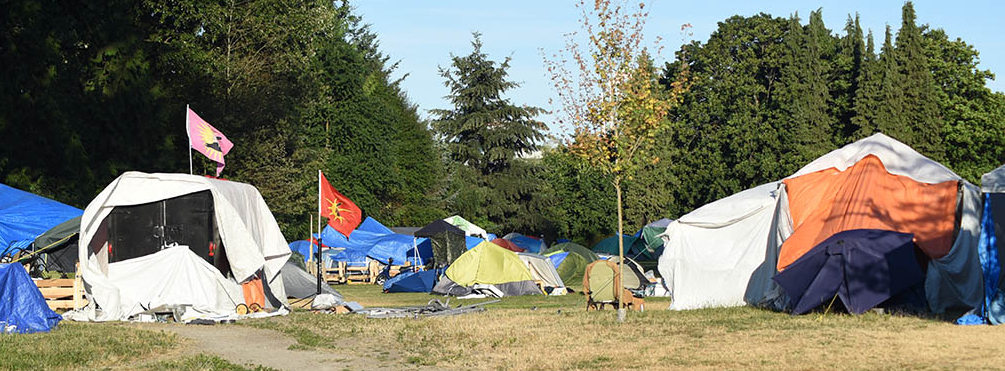
Tent city in Strathcona
Park.
The homeless forced out of federal land near Crab Park, some of whom were charged with criminal contempt for defying an injunction, have moved to Strathcona Park, where they have set up a large tent city that continues to grow. The injunction and police action against them have not solved the problem of their poverty and homelessness. They still lack a means of subsistence and many still lack assistance for the mental and physical problems they are suffering.
To the great credit of the residents of Strathcona, they did not attack those who have occupied their beautiful park but singled out the state, which refuses to address the real problem of poverty and homelessness, for failing to provide real solutions. Many have voiced their demand for homes for all and a new direction for the economy that eliminates poverty and civil death, and are doing so in an organized way.
Strathcona residents have a long history of militant defence of their rights and neighbourhood from imperialist attacks. In the 1960s and '70s, the Strathcona Property Owners and Tenants Association (SPOTA) challenged the City's redevelopment plans in defence of the community. In 1971, the Militant Mothers of Raymur organized a blockade of railway tracks to win their demand for an overpass so children could safely cross the tracks to get to school. The Community also organized to stop a proposed freeway from slicing through their community and their homes.
Faced with the occupation of their park by people living in tents and the obvious unhealthy conditions that arise from the lack of proper infrastructure and amenities, they have remained calm and have organized to make their voice and demands for real solutions heard through publications and various forms of resistance.
Strathcona Stands for Safe Homes for All
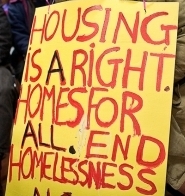 The Strathcona
Neighbourhood Movement on its website safehomesforall.com writes:
The Strathcona
Neighbourhood Movement on its website safehomesforall.com writes:
"We are the residents of Strathcona on unceded Indigenous land. We are a diverse and inclusive community of people who live in owned homes, rented homes, care homes, co-op housing, social housing, RVs and tents. We care for our neighbourhood, and we look out for each other. In recent months, hundreds of our unhoused neighbours have been repeatedly displaced into unsafe and unsupported park spaces. Our community has also experienced a steady increase in personal crime, property crime and public health hazards. We attribute these issues to government inaction and neglect in the face of urgent public health and housing crises. Our small neighbourhood is disproportionately impacted by these crises, and we see our elected officials doing little to help us. As the newest generation of Strathcona community activists, we will not sit back and accept more discrimination and neglect. We stand on the shoulders of SPOTA and the Militant Mothers of Raymur to demand our governments take immediate action to ensure our collective health and safety.
"We Stand for Safe Homes for All."
They are calling on everyone to:
1. Sign, Support and/or Share the Online Tax Resistance Petition, bit.ly/DeclareStrathResistance for Strathcona property owners, and bit.ly/SupportStrathResistance for Strathcona renters or residents who don't own property. For all and anyone, including people who don't live there, to visit change.org/safestrathcona for other ways to get involved.
2. Write regular e-mails (send one every day or every few days) to one or all of the politicians they list, asking them to take responsibility and immediate action to address the urgent public health and housing crises in Strathcona.
3. Protest with them at the first neighbourhood protest event. Details will be sent to those who send them their email address or phone number.
4. Make Signs for the neighbourhood protests. Homemade signs that are big and clear enough to show up on TV are needed.
Tax Resistance Campaign
"Our Strathcona community is vibrant, inclusive and compassionate. We draw strength and resiliency from the diversity of our neighbours, who include Indigenous people, multi-generational Chinese-Canadians, new Canadians, young families, pensioners, artists, activists, and most recently unhoused residents of Camp K-T. We care for each other, and we share a keen interest in community health and safety.
"In recent years, our resiliency has been tested by a steady increase in personal crime, property crime and public exposure to human and biohazardous waste. These issues have worsened dramatically in recent weeks, to the point that many of our most vulnerable neighbours -- including low-income seniors and children -- feel too unsafe to use one of only two neighbourhood parks available to them.
"More than ever, we fear for our collective health and safety. We recognize our situation as a consequence of government inaction in the face of obvious public health and housing crises. We have been abandoned by our elected officials.
"NOW THEREFORE, we, the undersigned Strathcona homeowners, declare our intention to withhold property tax payments to the City of Vancouver -- by way of deferral, assessment appeal or other lawful means -- until such time as our municipal, provincial and federal governments act together or individually...."
To read the full Strathcona
Homeowners' Declaration of Tax Resistance in Demand of Community
Safety, click
here.
(Photos: digitalmonkblog)
Demands
for a Comprehensive Regularization Program for
Migrant
Workers and Refugees
Montreal March Reveals the Depths of Canada's Human Rights Violations
As part of the fourth Pan-Canadian Day for Status for All, Solidarity Across Borders organized a rally outside the Montreal offices of Quebec Premier François Legault on McGill College Avenue on Sunday, September 20. Approximately 200 people showed up for the event, amongst them many youth, refused refugee claimants and undocumented workers.
The action began with an organizer noting that migrant workers and their allies refuse to be divided and that Solidarity Across Borders will continue to be there for those fighting for justice for all.
He referred to a recent La Presse article which revealed that during the pandemic, many undocumented workers have been hired by temp agencies and paid, under the table, to work in many of Quebec's public residential and long-term care homes (CHSLDs). "No one is going to get me to believe that the government is unaware that people are being treated today like slaves, not only in CHSLDs but across Canada. This is unacceptable and Canadians agree that these workers do not deserve to be treated this way." He pointed out that many states "refuse to recognize immigrant rights." Noting that many people "flee their country in fear of their lives or because they want a better life," he added, "Canada has the resources to receive them all." In his view, another very serious issue is that "our governments are not there for us. They're there for the multinationals."
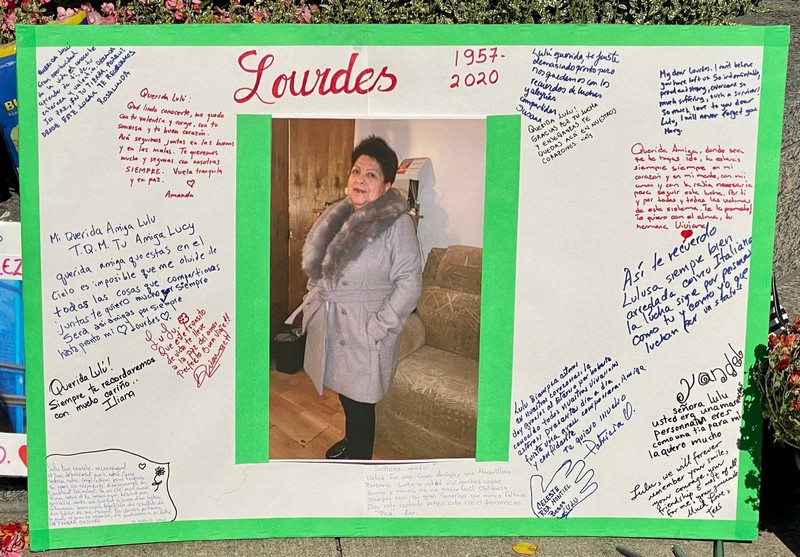 Viviana Medina
from the Immigrant Workers Centre then informed participants that
Lourdes, an undocumented worker who had lived in Montreal for 11 years,
had died a few days earlier in her home country, Mexico. During her
time in Montreal, Lourdes had been paid $5 to $10 per hour, often
working 13 to 16 hours per day. She suffered two work accidents and
three surgeries while in Canada but was not entitled to compensation or
health care. She was forced to return to Mexico as a result of debts
and health-related problems. A moment of silence was observed in memory
of Lourdes and of all migrant workers who have lost their lives.
Viviana Medina
from the Immigrant Workers Centre then informed participants that
Lourdes, an undocumented worker who had lived in Montreal for 11 years,
had died a few days earlier in her home country, Mexico. During her
time in Montreal, Lourdes had been paid $5 to $10 per hour, often
working 13 to 16 hours per day. She suffered two work accidents and
three surgeries while in Canada but was not entitled to compensation or
health care. She was forced to return to Mexico as a result of debts
and health-related problems. A moment of silence was observed in memory
of Lourdes and of all migrant workers who have lost their lives.
Participants were also informed that although all deportations had been halted because of COVID-19, except for those with a criminal record, one rejected refugee claimant who does not have a criminal record, Mamadou Konate, has been informed of his impending deportation. Originally from Ivory Coast, he has been held since September 16 at the Laval Immigration Detention Centre, after voluntarily presenting himself to Immigration Canada in the presence of his lawyer. He wanted the government to suspend his pending deportation on humanitarian grounds -- a request that was previously denied.
One of Mamadou's friends said at the rally: "We're now being told that deportations have recommenced, but Mamadou has not yet been given a date." He informed participants an action was planned September 23 in front of the federal government offices in Montreal at Complexe Guy-Favreau.
 Mostafa Henaway
from the Immigrant Workers Centre then took the mic. Referring to the La
Presse article, he stated that "it was revealed that an
overwhelming majority of those hired as cleaners in CHSLDs were clearly
undocumented workers with precarious status. The Legault government's
response was shock, one of 'How could this be possible?'" He decried
government hypocrisy as Quebec's health care system and economy are
being kept going by those without permanent status, those who are
undocumented or refused refugee claimants." "Most of the cleaners were
hired through a sub-contractor," he informed. "At one end there's GDI
[GDI Integrated Facility Services] and those with permanent status will
get a job directly through this multinational corporation, with
benefits, a living wage, regular hours, will be called 'guardian
angels,' 'heroes.' If undocumented, working the same job through a
sub-contractor, who then hires a temp agency -- and because everyone
has to make a cut -- these workers will receive $10 to $11 [an hour],
under minimum wage and face the constant fear not just of being
deported, but for their actual lives during the pandemic."
Mostafa Henaway
from the Immigrant Workers Centre then took the mic. Referring to the La
Presse article, he stated that "it was revealed that an
overwhelming majority of those hired as cleaners in CHSLDs were clearly
undocumented workers with precarious status. The Legault government's
response was shock, one of 'How could this be possible?'" He decried
government hypocrisy as Quebec's health care system and economy are
being kept going by those without permanent status, those who are
undocumented or refused refugee claimants." "Most of the cleaners were
hired through a sub-contractor," he informed. "At one end there's GDI
[GDI Integrated Facility Services] and those with permanent status will
get a job directly through this multinational corporation, with
benefits, a living wage, regular hours, will be called 'guardian
angels,' 'heroes.' If undocumented, working the same job through a
sub-contractor, who then hires a temp agency -- and because everyone
has to make a cut -- these workers will receive $10 to $11 [an hour],
under minimum wage and face the constant fear not just of being
deported, but for their actual lives during the pandemic."
Mostafa called out the government on its so-called willingness to address the situation. "Its regularization program was just a slap in the face to these cleaners, as they weren't going to be included, they won't be given equal rights and treatment. And for everyone else without status, it's an even greater slap in the face and is an example of the level of racism in the society where, in fact, there are two worlds -- not like how Legault says between [what took place in] old age homes and the rest of society, but -- between those without status and those with. Those without can keep on growing and delivering our food, caring for our elders, doing all the work and not only not be paid, but face deportation. Or others who become so sickened by the process, by stress, anxiety, by the way that [the situation] breaks you down, not just emotionally but physically, year after year. To not even be treated humanely, as if you don't exist. The only recognition is from what we do and from right here," he noted.
"The fact that people have to die, have to go on hunger strikes, have to even be here is an insult, to demand nothing more, but nothing less, than anyone else," he concluded.
Another speaker pointed to the actions of Prime Minister Justin Trudeau who "took a knee a couple of months ago in a photo op, to then stand up and detain and deport people, come up with a regularization program that's nothing more than window-dressing, that fails to take into consideration the hundreds and thousands of people that live in this country. They are our families, our friends, neighbours, co-workers, people who take care of our loved ones... We must continue to fight for justice, dignity, the right to humanity, status for all. No One Is Illegal! Justice for Migrants! Status for All!"
 Mohamed Barry,
co-founder of the Guinean Committee for Status and a member of
Solidarity Across Borders, then addressed the crowd. "There are many
Guineans here in Canada, particularly in Montreal," he said. "These
people have integrated here, they work well, there's no language
barrier. Some of them are studying ... Unfortunately, despite all their
efforts and all they've done to integrate, hundreds of them are facing
deportation. After the pandemic, many will be deported."
Mohamed Barry,
co-founder of the Guinean Committee for Status and a member of
Solidarity Across Borders, then addressed the crowd. "There are many
Guineans here in Canada, particularly in Montreal," he said. "These
people have integrated here, they work well, there's no language
barrier. Some of them are studying ... Unfortunately, despite all their
efforts and all they've done to integrate, hundreds of them are facing
deportation. After the pandemic, many will be deported."
Describing Guinea as a country run by criminals, Mohamed went on to explain that the present government is responsible for the killing of 45 people, "people in their teens and in their 20s. Women were rounded up, older people were beaten, houses were demolished." He then informed that in 2015, Canada entered into an agreement with Guinea. "The agreement begins with the statement that both countries must respect human rights. The rights of Canadians are respected in Guinea, as all Canadian expatriates [...] are very well paid and often housed by the Guinean government. On the other hand here in Canada, Guineans are imprisoned, rejected, work in plants and warehouses [...] in violation of the agreement."
"Canada's interest in Guinea is over its resources," he emphasized, noting that SNC-Lavalin, Rio Tinto and various other mining companies have been operating in the country for over 20 years and exploiting it. "Guinea," he said, "is the world's second largest exporter of bauxite."
Mohamed remarked that Quebeckers have proven themselves to be very hospitable towards himself and his compatriots, noting that many Quebeckers come out for demonstrations and press conferences. On the other hand, he continued, "even though governments claim that they are not intolerant and that refugees have a place here, that's not the reality." He said that during the pandemic, Guineans, amongst others, "were imprisoned" and added that even though the Public Health Authority has recommended social distancing measures, "many times at the Laval Detention Centre this is not respected. They're placed in vans without windows, to be transported. They're unloaded with their hands and feet in chains, to humiliate them. This, despite the fact that Canada is a signatory to a number of international human rights conventions. Unfortunately, Canada does not respect human rights, particularly with regard to refugee claimants, as they are criminalized. It refuses to take into consideration our five, 10 or 15 years here of integration and considerable efforts and gives us two weeks before we are deported by the Canada Border Services Agency, irrespective of the humanitarian grounds we may have. We are all essential, we all need to be able to live in dignity and without fear, to live like everyone else."
Participants then marched to the federal government offices at Complexe Guy-Favreau. En route, Clément Sageste of Quebec Is Us Too (Le Québec c'est nous aussi) opined: "The government must respect the dignity of human beings, whether they are students, workers, refugees, the undocumented. The answer is that everyone in Quebec and Canada deserves a status. The question should not even have to be posed."
At Complexe Guy-Favreau, Frantz
André of the Action Committee on Non-Status Persons (CAPSS)
recounted how the U.S., France and Canada have been waging war on his
country of origin, Haiti. "We have come here to get what is ours by
right," he asserted, pointing out that many of the so-called rich
countries make life untenable for migrants in their home countries,
forcing them to flee.
(Photos: TML)
Round Two of COVID Pandemic
Activating the Human Factor
Is Key
to Providing Solutions
With the economy opening up and schools having resumed classes Canada-wide, the evidence is pointing toward a second potentially explosive wave of COVID-19 infections. The potential to overwhelm the public health system seems to be the primary concern of government officials, not the fact that restart has been undertaken with insufficient safeguards for the safety and well-being of those resuming work and school. Hundreds of millions of dollars have been given to private interests by the Canadian state for the development of a vaccine.
| |
Other countries with far fewer resources, Cuba and Vietnam for example, have achieved far better results because they have a human-centred, not capital-centred, approach.
In Canada, the initiatives of front-line health care workers for the safe operation of long-term care facilities and the provision of home care, and those of teachers, education workers, parents and students for the safe functioning of schools within the existing circumstances, are ignored and obstructed. Many provincial governments, for example, made no provision for adequate distancing in classrooms. Teachers, parents and students making their own proposals are looked upon as a problem and not as a colossal force for setting norms and standards for schools and society at large, within the conditions of the present pandemic.
Evidence of a coming second wave is mounting. Health Canada reported 1,766 new cases on September 21. Canada's Public Health Officer Theresa Tam said that "if the current rate of infection is maintained the epidemic is expected to re-surge."
Of these more than 1,700 cases, 586 were in Quebec, 425 in Ontario, 366 in BC and 358 in Alberta. Such numbers have not been seen since May and the majority of cases in Ontario -- 67 per cent -- are people of working age, less than 40-years-old.
Schools across Canada have resumed and there is a correlation with the spread of COVID-19, although it is still too early in the academic year to see the full impact. In Ontario, 118 public schools reported 138 new cases on September 22. Ottawa alone reported 40 new cases at 23 of 28 reporting public schools (29 students, seven staff and four unspecified). Since the start of the school year, Ottawa has a cumulative total of 193 student and seven staff cases. Toronto schools reported 13 new cases on September 22 (four students and nine staff) and Toronto public schools had not even all resumed classes due to staggered start dates this year.
 Quebec reported
507 confirmed cases at 272 public and private schools, elementary and
secondary. Sans-Frontière, an elementary school in
Quebec City, was closed on September 22 due to an outbreak of 20
student and five staff confirmed cases. It is the second school in
Quebec to be closed due to an outbreak. BC is not yet
reporting the total number of COVID-19 cases and the number of schools
with cases. Support Our Students Alberta reported that as of
September 25 there were 142 schools (118 in the previous two weeks)
with COVID-19 cases, 33 with outbreaks (2 to 4 students and/or staff
cases) and five schools on "watch" with five or more cases.
Alberta’s Chief Medical Officer reported active alerts or
outbreaks in 97 schools with 163 active cases in total as of September
24.
Quebec reported
507 confirmed cases at 272 public and private schools, elementary and
secondary. Sans-Frontière, an elementary school in
Quebec City, was closed on September 22 due to an outbreak of 20
student and five staff confirmed cases. It is the second school in
Quebec to be closed due to an outbreak. BC is not yet
reporting the total number of COVID-19 cases and the number of schools
with cases. Support Our Students Alberta reported that as of
September 25 there were 142 schools (118 in the previous two weeks)
with COVID-19 cases, 33 with outbreaks (2 to 4 students and/or staff
cases) and five schools on "watch" with five or more cases.
Alberta’s Chief Medical Officer reported active alerts or
outbreaks in 97 schools with 163 active cases in total as of September
24.
The most valuable lesson learned in our experience of the first wave of COVID-19, as Canada lurches toward the second, is that activating the human factor is key to providing solutions.
(Photos: FIQ, YouSeePee-YYC)
UN "Independent Fact-Finding Mission" on Venezuela
The Elite's Overkill with Venezuela
An umpteenth report by an international body has come out against Venezuela. And, as expected in the sensationalist society, the hair tearing, wailing and head-in-hands has begun.
No matter that those who today weep before the world for the suffering Venezuelan people are the same ones who fail to comply with everything they demand of Venezuela, or who always look the other way when it comes to other countries and other peoples.
International law has been trampled on in recent years by those who attack Venezuela. Unilateral blockades and sanctions, permanent military provocations, attacks on its embassies, interception of ships carrying medicines. They say these are "sanctions against a narco-dictatorship" -- at least that is how the heads of state of the very countries that produce and consume the most drugs on the planet explain it.
The whole tradition of Western diplomacy has been thrown in the garbage when it comes to Venezuela. We have seen foreign presidents going to that country's border inciting war and legitimizing a territorial violation. Nations allied with the USA have suspended the credentials of diplomatic personnel and banned their vehicles from travelling on public roads. The United States, going back to its wild west days, has put a price in dollars on the head of the Venezuelan president and those close to him.
The entire international financial order has been used to "make the Venezuelan economy scream." Its Central Bank has been sanctioned (a measure that is unique in the world), its gold has been seized in England, its refineries have been confiscated in the United States (Citgo), and third countries not paying their debts to Venezuelan state companies are applauded.
The same people who are crying for more democracy in Venezuela are keeping quiet about the recent coup d'état in Bolivia. They are the same people who, like the Chilean Francisco Cox, editor of the UN report, are pleading for human rights in Venezuela, while on his recent visit to Chile he stated that he was unable to ascertain "attacks on the civilian population as a state policy" and that "I do not believe the President [Piñera] bears international criminal responsibility." He says this with respect to a country which, following the social upheaval of October 2019, has more than 1,500 youth in prison, total militarization of the territory and the sad world record of almost 500 people having their eyes mutilated in barely four months... Not even in Palestine does this happen.
This double standard, this worldwide hypocrisy, this cynicism is possible, in good part, because the mainstream media of the world silence the one and make a scandal out of the other. What happens then is that thousands of journalists, many of them "progressive," become part of a game in which Venezuela is permanently called into question.
These journalists, for example, those in my country -- Chile -- while demanding declarations, put on sad faces, are affected and hurt by the violations of human rights in Venezuela, yet they say nothing about the recent coup and massacres in Bolivia (a neighbouring country). While they talk about the "corrupt Maduro regime," they say nothing about Peru (a bordering country) whose six last presidents have been involved in major corruption that has led to imprisonment, suicides and resignations.
That is why in this debate the arguments and counter-arguments make no sense. This is not a subject for democratic debate; we are not dealing with a rational discussion. There is no space for discovering reasons and counter-reasons that could illuminate different positions.
It is not a debate, it is an attack.
An attack that went from preoccupation to obsession, and from there to overkill. And in the face of the attacks, especially in their acute phases like the ones we are seeing today, one can only affirm one's principles and take a position. Because for Trump, Piñera, Bolsonaro, Aznar, Duque and Santos, that is what it is all about: overthrowing positions, tearing down the positions of those who, like millions of Venezuelans, believed they had the right to think and to propose a non-capitalist society, and to once again speak of socialism.
It is a hard, permanent, painful and uncertain attack, but let's not forget that it is an attack of the global elite. The peoples are fighting another battle, in their territories, in their communities. It is also a tough, painful and uncertain battle, but whose end may be our beginning.
(teleSUR, September 19, 2020. Translated from original Spanish by TML.)
U.S. at the Crossroads in Venezuela
According to allegations from Caracas and by reputable international analysts, President Donald Trump seems willing to resort to an "October surprise," in which Venezuela would be the target of his bellicose machinations in order to bolster his November re-election bid.
It is an open secret that they will resort to some desperate action as a means to rally Americans around the president, something traditional with leaders aspiring to re-election when the numbers are against them.
A Pentagon-sponsored military attack on Venezuela could take place before the November 3 election, alleged journalist Ángel Guerra in an analysis published in the Mexican newspaper La Jornada.
Colombia is the visible face of the preparations since it has hosted seven U.S. military bases that would spearhead the attack on the neighbouring nation and other states in the region, although the "drums of war" are also beating in Brazil and other nations.
Samuel Moncada, Venezuela's ambassador to the UN, emphatically denounced the preparations and pointed out that Washington's propaganda machine is already promoting the invading multinational force against his country, which would constitute a military occupation, but without the visible presence of the Pentagon on the front lines.
It is the armies of Colombia and Central America that will be doing the dirty work, said Moncada in another tweet, while warning that the higher stage of aggression against his country is already under way, with a campaign of maximum pressure now moving into the military sphere.
"They're looking for an 'October surprise,'" he tweeted, quoting from an article on the conservative Washington Examiner's website, where insinuations of the head of the U.S. Southern Command, Admiral Craig Faller, and Phil Gunson of the International Crisis Group about an eventual invasion can be seen.
With this objective in mind, White House officials frequently travel around the region seeking support and stooges. In this scenario a meeting that took place between President Iván Duque, Faller, U.S. National Security Advisor Robert O'Brien, his deputy for Latin America, Cuban-American Mauricio Claver-Carone, appointed to head the Inter-American Development Bank, and U.S. ambassador [to Colombia] Philip Goldberg stands out.
Clearly, the "situation in Venezuela" was the main topic, although embellished by others such as drug trafficking and immigration, all of which were used to "justify" war against Venezuela.
Added to this is the hatred of Cuban-American Senator Marco Rubio, who is promoting Trump's campaign, to convince the president to invade Venezuela so as to secure Florida's 29 electoral votes:
Sergio Rodríguez Gelfenstein, a Venezuelan academic and analyst, considers that it is clearer than ever that Washington's foreign policy cannot be achieved through diplomatic channels that are inclined towards negotiation and dialogue and can only be imposed through submission, force, threats and blackmail.
The failure of the U.S. State Department's strategy for Venezuela in the political sphere is obvious.
In recent weeks, pardons for opposition figures and other political actions of the government of President Nicolás Maduro have undermined arguments for the aggressive plans, though the threat exists and becomes increasingly evident as Washington officials travel around Latin America seeking support.
In that context, U.S. Secretary of State Mike Pompeo visited the Brazilian city of Boa Vista, on the border with Venezuela, where he carried out a hostile act against Maduro's constitutional government, reported the website Brasil 247.
With the complicity of the government of Jair Bolsonaro, the former head of the CIA sought to "grease" the plans for aggression, already rehearsed for years through exercises of "alleged humanitarian assistance" from the Brazilian border, in which several of the region's armies and even NATO troops have taken part.
The presence of the U.S. secretary of state on the border between Brazil and Venezuela is intended to escalate the aggression, according to various Brazilian social forces, who see this action as another media event designed to promote the electoral interests of the Republican Party on the eve of the elections in that country.
Pompeo included in his tour other nations such as Suriname, Guyana and Colombia, with the latter, like Brazil, being an ally of the White House in its hostility toward Venezuela.
It is also noteworthy that Honduras recently agreed to allow over 60 Puerto Rican soldiers to enter the country to reinforce security operations of the U.S. Southern Command, something which may be aimed at Venezuela, as that Central American nation is considered the perfect "aircraft carrier" for U.S. missions in South America.
While Venezuelans are prepared to respond to any aggression, theamericanconservative.com points out that Washington needs to abandon its dead-end policy on Venezuela, which in the end does not serve its interest.
An analysis by Daniel Larison, a senior editor of TAC [The American Conservative], stresses that White House policy has reached a crossroads. Those in charge in Washington have two paths before them: they can continue along the path of "maximum pressure" and sabre-rattling, or they can choose the path of pragmatism, supporting more flexible negotiations towards a democratic transition at the ballot box, as proposed by the Caracas authorities.
It is obvious that conservative sectors close to Trump will continue to bet on maximum pressure and an eventual military intervention, in which a gang of servile nations will support the U.S. strategy.
Hopefully that is not the preferred option, as the Venezuelans are prepared and armed for a drawn out war.
(Al Mayadeen, September 19, 2020. Translated from original Spanish by TML.)
Taking Apart the Report
The recent publication of a report[1] issued by the Independent Fact-Finding Mission in Venezuela of the Human Rights Council of the United Nations (UN)[2] was highlighted in the media and international opinion for its accusations regarding the situation of human rights in Venezuela.
This report deals, with great specificity, with extrajudicial executions, forced disappearances, arbitrary detentions, torture "and other cruel, inhuman or degrading treatment committed since 2014."
The Mission was approved by Resolution 42/25[3] of September 27, 2019, in a vote at the UN Human Rights Council, which was rejected in December 2019 by the Venezuelan Foreign Ministry.
On that occasion the resolution was supported by the votes of: Argentina, Australia, Austria, Bahamas, Brazil, Bulgaria, the Czech Republic (Czechia), Chile, Croatia, Denmark, Slovakia, Spain, Hungary, Northern Ireland, Iceland, Italy, Japan, Peru, United Kingdom of Great Britain and Ukraine.
The resolution that gave rise to this commission was rejected by Venezuela at the time[4] and today it is in contradiction with the instruments of collaboration that the Bolivarian Republic has ratified with the Office of the High Commissioner for Human Rights, led by Michelle Bachelet, which has an office in the country and has to date presented two reports that have clear differences with the one that has been published now.
Venezuela is working in coordination with the Office of the High Commissioner within the framework of the Letter of Understanding signed in September 2019,[5] in accordance with the provisions of Resolution A/HRC/42/4, adopted by the Human Rights Council in its 42nd session.
It is worth saying that, despite the good offices and auspices of the Office of the High Commissioner and the Venezuelan government, the existence of this parallel commission not ratified by Venezuela arises within the same contradictions of the institutional structure of the United Nations system. These contradictions separate the actions of the High Commissioner's office from the actions that countries take on their own, even though they are part of the Human Rights Council.
This mechanism which Venezuela does not recognize appears to have been put in place by a group of countries that, in 2019, were fully aligned with the U.S. strategy of building a spurious dossier against Venezuela, as part of the ongoing agenda of overthrowing the government and the establishment of a "parallel" government and diplomacy that, at that time and right up to today, has tried to isolate the legitimate institutions of the country.
The report that has resulted from this parallel Commission and, to repeat, that was not ratified by Venezuela, bears the markings of the efforts of the United States government, but also those of the Organization of American States (OAS) and the Lima Group, agencies that have played a key role in the criminalization of Venezuelan institutions and the Bolivarian Government.
The Misión Verdad (Truth Mission) research and analysis team has conducted a detailed review of this report and outlines its most salient inconsistencies below.
The Political Purpose of the Report
In context, the report emerges in the lead-up to the upcoming parliamentary elections in Venezuela. It was ratified by the International Contact Group organized by the European Union (EU) to deal with the political crisis in Venezuela and, after its publication, the EU has confirmed its position of not observing and accompanying[6] the country's upcoming elections.
With the report, the EU rids itself of the flimsy pretext of not showing up for the elections in Venezuela due to "lack of time" to organize its mission in the country. This, despite the fact that Venezuela's invitation was issued months in advance. The EU had distanced itself from the Venezuelan elections, declaring the alleged unfeasibility of organizing a mission three months ahead of December 6 this year, and now its diplomatic representatives declare that human rights conditions in the country preclude such a possibility.
Although the EU had taken open steps toward a possible observation and approval of the parliamentary elections, its foreign policy once again veered in favour of the U.S. agenda that seeks the continuity of the political crisis in Venezuela and the inopportune support of the current National Assembly.
The position of the EU is clearly linked to what was said by the Secretary General of the OAS, Luis Almagro, who immediately after the report was published, aligned it against the Venezuelan elections,[7] declaring that, because of such supposed human rights conditions, elections should not be organized and should not be recognized.
The report now becomes an instrument not only for the criminalization of the Venezuelan authorities, but also a watershed in the international institutional setup to deny the legitimacy of the Venezuelan elections and their quality as a political solution.
It will lead to gestures of non-recognition of the elections by countries and, in this scenario, the perpetuation for another five years of the crisis induced in the country and the superimposed government of Juan Guaidó, that is artificial and non-existent in fact, but an essential component for the continuance of the economic blockade against the country.
On the other hand, the document refers to alleged "systematic" violations of human rights and "crimes against humanity" that would have been carried out with "the full knowledge" of President Nicolás Maduro and his government. The objective is to establish a false long-term record of the non-applicability of crimes against humanity. It has no other purpose than to create a pseudo-legal precedent with criminal intentions against the Venezuelan authorities.
The report goes with other elements on the table, such as the efforts by the U.S. Attorney General William Barr months ago, to offer a reward for the capture of the Venezuelan President and part of his civilian and military cabinet at that time, for supposed "narco-terrorism," an action analyzed by Misión Verdad[8] at the time.
On the Preparation of the Report
As the document itself indicates, it is based on interviews with anti-Chávez political actors and was not conducted on the ground. This calls into question the very title of the report, since there can be no "fact-finding" without cross-checking testimonies on the ground.
1. In points 41, 42 and 43 corresponding to the first part of the report, the Independent Fact-Finding Mission in Venezuela of the UN Human Rights Council, again not recognized by the Bolivarian Government, reveals some initial shortcomings at the methodological level.
On the basis of these points, it constructs the general categories under which it falsely seeks to link the President of the Republic Nicolás Maduro, and other high officials of the Venezuelan State, to alleged crimes against humanity.
On these three points, the Mission's report establishes that the deprivation of liberty of certain individuals has been based on a scheme of persecution of political ideas and opinions, whitewashing their participation in acts of public agitation, violation of human rights, attacks on legal institutions and public order.
Under the premise that, supposedly, the Venezuelan State persecutes opposition figures for their opinions, the aim is to whitewash a set of actions harmful to the peace of the country that have had to be dealt with by the security forces.
On these points, the report also repeats that crimes against humanity have been committed as a result of so-called arbitrary detentions, cruel and inhumane treatment and other illegal practices attributed to the Venezuelan State.
The use of the concept of crime against humanity is misused from the beginning, constituting a methodological error that, in addition to weakening the technical credibility of the report, fully reveals its political intentions.
Acts that can be considered as crimes against humanity are stipulated in the articles of the Rome Statute,[9] the governing document of the International Criminal Court. The key concept of article 7, where the fundamental premises of crimes against humanity rest, is "extermination," understood as intentional actions that seek to progressively eliminate a population due to its political, ethnic or religious affiliation. It is fallacious to conceive that in Venezuela there are generalized practices to exterminate political or social sectors.
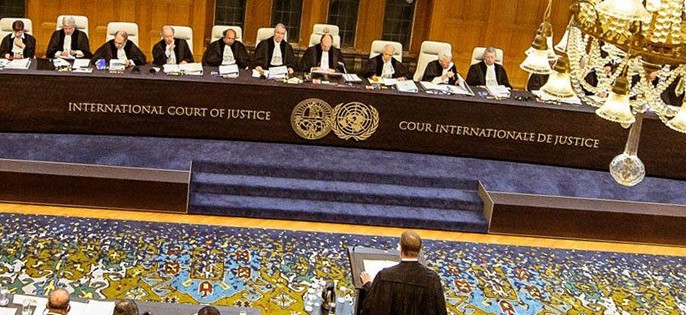
International Criminal Court in The Hague
2. The report elaborates an extensive chronology that attempts to summarize the last years marked by political conflict in Venezuela. In the analysis of the fundamental political events of the cycle that began with the presidency of Nicolás Maduro in 2013, the report shows high doses of political bias. This is reflected in the intention to transfer responsibility to the Bolivarian Government as the architect of the political and institutional crises of recent years, concealing the agendas of violence, a continuous coup and political disruption propagated by Venezuelan opposition actors.
A specific point demonstrates the political aim of the chronology. In number 87 it mentions Óscar Pérez, a CICPC [Scientific, Penal and Criminal Investigation Corps] official who in June 2017 stole a helicopter from the La Carlota Air Base and flew over public institutions located in the centre of Caracas, firing machine gun blasts and hitting them with fragmentation grenades, endangering the lives of civilians and even minors. The report does not classify this as an attack with terrorist characteristics, but rather reduces it to a brief, not very detailed mention.
The report also does not review with sufficient forcefulness and importance another important event that involved Óscar Pérez. In December 2017 Pérez starred in an assault on the command of the Bolivarian National Guard (GNB) located in San Pedro de Los Altos,[10] in the Guaicaipuro municipality of Miranda state. After gagging several military personnel and stealing weapons and ammunition, Pérez posted the scene on social media to enhance the impact of the assault. The armed and irregular action was part of the forming of a paramilitary cell led by himself for the purpose of initiating a low-intensity conflict of attrition against the Venezuelan institutions and security forces.
Another sign of political bias has to do with the interviews with Cristopher Figuera, who was directly involved in the attempted military coup in April 2019 ("Operation Libertad" -- Guaidó-López) and who now is protected by the United States government. Throughout the entire report, the whitewashing of his figure to make political use of his discourse as an actor who provides "privileged information" is noteworthy.
In point number 1987, a candid Figuera is portrayed as one who was never involved in the criminalizing acts of the report, giving the character in question an image of equanimity that contrasts with the alleged criminal nature of the government of Nicolás Maduro:
"General Figuera told the Mission that when he was appointed Director General of SEBIN [Bolivarian Intelligence Service] at the end of 2018, he took steps to change the practices inside the intelligence body. He told the Mission that he investigated specific allegations of torture, dismissed an official who he believed was involved in violations and secured the release of certain detainees, among other measures. The Mission has no knowledge of any complaints about torture during the period in which he was Director. Likewise, it does not have information either that criminal investigations might have been carried out into the complaints of torture in SEBIN nor of sanctions against those responsible."
3. In point 262 the report states:
"The Mission finds reasonable grounds to believe that arbitrary arrests were used to attack people for their political affiliation, participation, views, opinions or expression during the period under review."
In this sense, the Mission reveals its inconsistency since the people were not detained for their opinions or points of view, but for their involvement in coup d'état operations and the violations of internal stability that have left hundreds of innocent civilian victims, as evidenced by the cycle of colour revolutions/guarimbas [street barricades] in 2014 and 2017.
4. Later, the report establishes that the SEBIN and the DGCIM [Directorate General of Military Counterintelligence] have committed acts of torture and abuse of the human rights of those deprived of liberty. These accusations are supported in anonymous interviews impossible to verify. Because the Venezuelan executive does not recognize the legitimacy of this Mission, since it was raised as a "ghost" commission (Foreign Minister Arreaza dixit[11]) parallel to the one established by the UN High Commissioner for Human Rights, Michelle Bachelet, it evaded dialogue with the officials responsible for both institutions, since the report was produced outside the country, insisting that "there was no response" from the Venezuelan State.
Much of this argument is based on the accusations made by the former director of SEBIN Cristopher Figuera. Figuera fled Venezuela after the failure of "Operation Libertad" in April 2019, and since then has become a "source" for attacking the Bolivarian government. The report, we repeat, gives high credibility to Figuera's opinions, knowing his political partiality and his participation in an attempted coup, which weakens the accusations made against SEBIN and the DGCIM.
5. The report refers to the iconic case of Leopoldo López. Relying on the account of his lawyer (Juan Carlos Gutiérrez) and descriptions that are not very detailed or demonstrable, the Mission considers that López was a victim of "torture and cruel treatment or punishment," even though there are no examples or records that confirm this. The report bases this accusation on the night searches, the changes to the visitation period and other elements of anticipation and security against his possible plans to escape from the Ramo Verde prison.
Given the treatment of this case, it is noteworthy that there is a whitewashing of the events promoted by the operators of the coup in Venezuela. There is no contextual explanation of why López was arrested (promoter of a colour revolution/guarimba/coup d'état), the statement by Diosdado Cabello about the intention to murder López that his own family denounced is ignored[12] and the data supposedly proving his "arbitrary detention" is just accepted, which explains nothing. The same happens with the rest of the cases of the imprisoned politicians (some of whom were pardoned at the end of August), so it is not worth elaborating on the rest of the cases.
6. Later, the report refers to the cases of Antonio Ledezma, Gilber Caro and Steyci Escalona. In this section the report seeks to overwhelm with a cascade of statements that start from a biased version of their detentions, incorporating confusing elements that are difficult to prove in order to demonstrate the thesis of arbitrary detentions and abuse of the human rights of these individuals imprisoned for their involvement in coup plotting.
In Ledezma's case, the account of the events makes the former mayor appear as a hero of freedom who managed to "escape" (not break out) from his house arrest, which resulted from his having been involved in coup plotting and insurrection against the Republic (the so-called "Golpe azul" [Blue Coup] of 2015).
7. In point 470, aimed at negating government security plans, it uses the testimony of unidentified people, whom it implicates in mistreatment and human rights violations. This account is one of the most strident in the entire report and raises suspicions about the methodology of statements used on condition of anonymity.
Many of the testimonies allude to the fact that detainees at the time of the interrogation were "forced" to declare allegedly non-existent connections or facts. The whitewashing of the operators of the continuing coup in Venezuela is absolute.
In the case of Juan Carlos Requesens, to show just one example, according to relatives and lawyers, the government "induced," through drugs, the confession on his part[13] of having been a link for the assassination attempt in 2018.
It should be noted that, likewise, there is too much condescension in the report to characterize the assassination attempt in August 2018 against President Nicolás Maduro and members of the Military High Command for what it was. It doesn't even qualify it as "assassination."
8. The same occurs in the case of Víctor Navarro, leader of the Corazón Valiente [Fearless Heart] Foundation, supported by the United States in a context of violent destabilization to overthrow the Bolivarian Government. The testimonies collected reflect that Navarro was insulted after being detained in 2018, threatened with rape, among other alleged pressure tactics, to generate confessions, situations that the report assumes occurred and that constitute acts of torture.
9. In the case of Operation Liberation of the People (OLP) and Operation Humanitarian Liberation of the People (OLHP), the report assails us with statements and testimonies of eyewitnesses, statements of relatives of the victims and on stories that have a clear profile of sensitization in order to whitewash certain confrontations.
The report highlights that President Nicolás Maduro activated certain corrective measures in the face of different complaints of police excesses in the framework of these security mechanisms. The Office of the Attorney General of the Republic also executed a set of indictments, and opened several investigations, to prosecute police officers involved in crimes.
However, the Mission points to these elements arising out of intentions of a particular instance and does not give them an objective weight. In this sense, it chooses to overwhelm with stories and testimonies that project the image of a government and judicial institutions unconcerned in the face of complaints and that, supposedly, collaborated in, directed and coordinated the human rights violations that the report suggests occurred.
10. The use of fallacies and information without context is notable when it states, in point 127, that the National Constituent Assembly was established illegitimately because of not having consulted the population, when the Venezuelan Constitution[14] provides that the President of the Bolivarian Republic can convene a National Constituent Assembly (article 348).
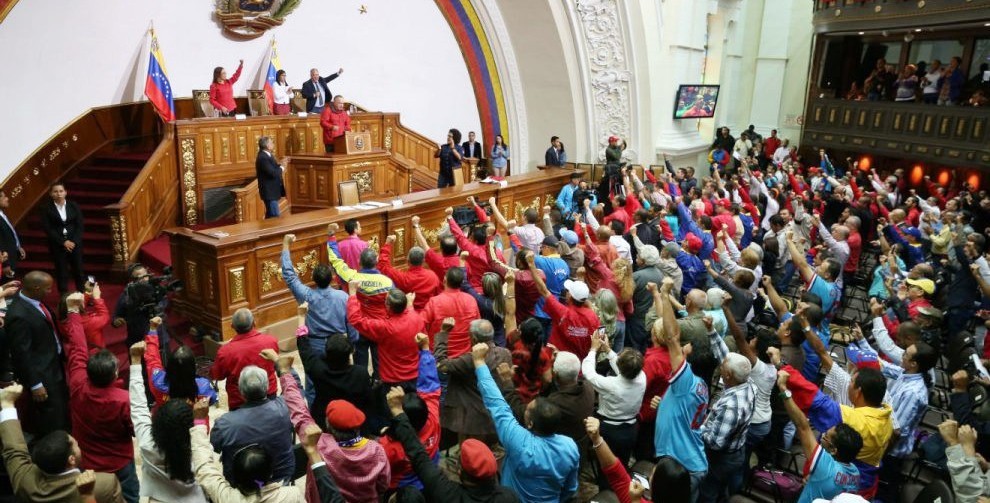
Session of Venezuela's
National Constituent Assembly.
In point 145, it says: "The executive allegedly uses the cards to distribute aid based on loyalty to the ruling party." A notoriously false fact: whoever lives in Venezuela can testify against this lie.
Likewise, point 147 says:
"The 'Orinoco Arco Minero Strategic Development Zone' was established in 2016 by Presidential Decree. It was created without conducting the social and environmental impact studies required by the Constitution. It comprises an area of almost 112,000 square kilometres around the Orinoco River that encompasses the states of Amazonas and Bolívar, through concessions expropriated from international companies. Organized crime and illegal armed groups have infiltrated the area, engaging in illegal mining and various related criminal activities, including smuggling. Numerous violations that correspond to the Mission's mandate have been reported in the Arco Minero region, which the Mission was unable to investigate due to time and resource constraints, as noted above."
This is also a fallacy because the Arco Minero is a project that was planned during the presidency of Hugo Chávez and put into practice during the government of Nicolás Maduro, precisely to prevent criminal mining groups from committing illicit acts (economic, sovereign and ecological) in the area circumscribed by the Arco.
11. In point 216, the "collectives" are mentioned for the first time, defining them as "armed groups" and "criminals" (taking Insight Crime as a source), when in the majority of cases they do not fit that profile: they are social and/or popular organizations that do grassroots work in communities of different types (productive, organizational, cultural, health, etc.). In this sense, organized communities, be they communal councils, communes, Local Supply and Production Committees (CLAP) or social and popular collectives/organizations, are criminalized by the report, and identified as being accomplices of the "crimes" described. Thus, grassroots Chavismo is subject to criminalization.
12. The report emphasizes that Venezuela ratified the Rome Statute on June 7, 2000, implying from the outset that the crimes it examines and describes for which it blames the Venezuelan government are liable to be tried before the International Criminal Court.
But later, the report clarifies in point 1977:
"It is important to remember at this stage that the Mission's conclusions are based on a particular evidentiary criterion: the Mission considers that the facts are established if there are reasonable grounds to affirm them. This criterion is both lower than the criterion required for a criminal conviction (proof beyond reasonable doubt) and than the balance or probability test in civil matters (which means that something is more likely to have happened). The Mission's findings do not amount to a criminal conviction and the information presented here is, in most respects, less than what would be needed to achieve a criminal conviction. The determination of the individual criminal responsibility of the persons mentioned in this section must be carried out by the competent judicial authorities." (Emphasis by Misión Verdad).
This inconsistency clearly shows that the report attempts to skew Venezuelan and world public opinion in favour of the Mission's objectives (in a context of increasing siege and suffocation by internal and external factors, plus the electoral context).
13. At the end of the report, in the "recommendations to the Bolivarian Republic of Venezuela," point 59 says:
"Cooperate with the bodies of the Organization of American States. Comply with the precautionary measures issued by the Inter-American Commission and the provisional measures issued by the Inter-American Court. Apply the judgments of the Inter-American Court related to Venezuela."
The sentence summarizes what Venezuela must do so that the accusations against its leaders cease to have effect, or lapse into a non-condemnation, which is the prerogative of those who promote this Mission: to allow themselves to be protected in a blackmailing manner under the banner of human rights from the institutions that are directly controlled by the United States, or are directly or indirectly influenced in an obvious way.
14. In the "recommendations to the international community," the report states:
"63. States should consider the possibility of initiating legal actions against the individuals responsible for the violations and crimes identified in this report, in accordance with their pertinent domestic legislation."
The foregoing can be considered a call to the Lima Group and other countries in the Anglo-imperial orbit of influence to adhere to the strategy of strangulation of the Venezuelan population and government and even to deepen the pressure already exerted by a good number of countries in the region and in other continents.
Likewise, and to end these "observations" of the Mission, point 65 calls for "the Office of the Prosecutor of the International Criminal Court to take into account the need for timely justice to be done for the victims of the crimes investigated by the Mission and to those who are under your consideration," which concludes the ultimate, long-term purpose of this report: the attempt to force a trial at The Hague against Nicolás Maduro, Diosdado Cabello and other ministers who are held responsible for alleged crimes against humanity.
The inconsistencies of the report are evident everywhere, as long as a lens is used that is not prejudiced by the rhetoric endorsed by the U.S. government regarding the Venezuelan conflict.
Notes
1. ohchr.org
2. ohchr.org
3. undocs.org
4. Venezuelan government document
5. UN Document
8. medium.com
9. Rome Statute of the International Criminal Court
10. See video here
11. Jorge Arreaza twitter feed
12. See here
13. See video here
(Medium, September 18, 2020. Translated from original Spanish by TML. Photos: AVN, Int Criminal Court, Misión Verdad)
Demands to Stop Police Crimes in the U.S. Mount
Resistance
Movement Rejects Refusal to
Charge Breonna Taylor's Killers
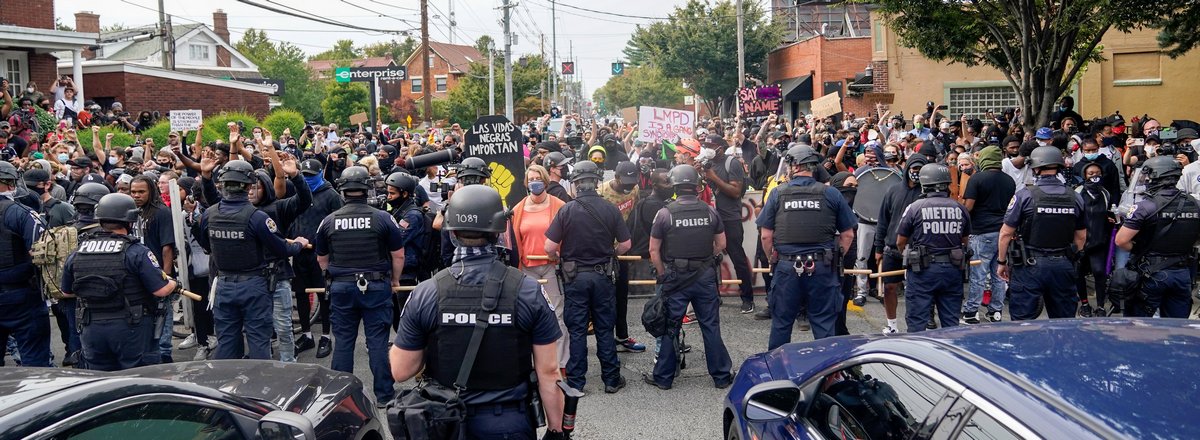
Louisville, Kentucky
protest, September 23, 2020, following court's refusal to indict
officers for killing Breonna Taylor.
On September 23, Kentucky's Attorney General Daniel Cameron announced that a grand jury would not indict the racist police who killed Breonna Taylor in her home, March 13, in Louisville.
Two of the
police involved in the killing of Breonna Taylor were allowed to go
free, a third is charged only with "wanton endangerment" for shooting
into the apartment next to where Breonna lived, while a fourth, who
lied about Taylor's involvement in drugs to secure the warrant for the
police raid, was not charged. The warrant cited claims by a U.S.
Postmaster that Breonna was receiving illegal packages at her home,
claims which that U.S. Postmaster later testified he had never verified.
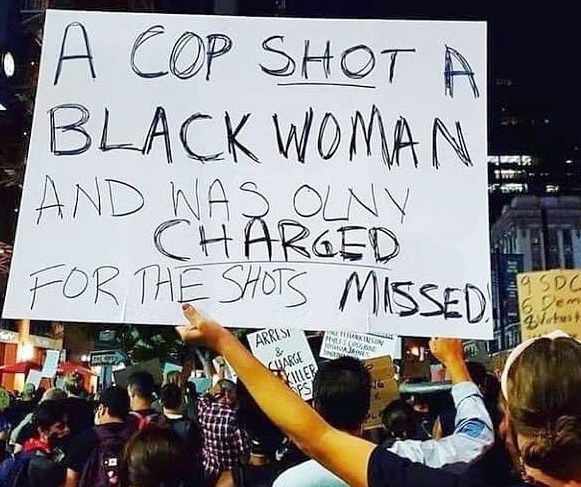 Expressing the
views of many, a Palestinian-American activist in Louisville said the
failure to lay charges "tells people cops can kill you in the sanctity
of your own home."
Expressing the
views of many, a Palestinian-American activist in Louisville said the
failure to lay charges "tells people cops can kill you in the sanctity
of your own home."
The response of the people of Louisville was fast and furious. Demonstrations have been ongoing in Louisville for more than 100 days and it is only as a result of their determined resistance that Breonna's name has become known and that a grand jury was even given the case, six months after her killing. Demonstrations there swelled on the news of yet another government provocation, whose atrociousness and inhumanity reveal the depths of the racist system in the United States.
Besides the outrage expressed in Louisville, many poured into the streets in protests across the country, in New York City, Chicago, Minneapolis, Los Angeles and elsewhere.
More than 11,336,700 people signed a petition demanding all police involved be held accountable and that government officials take action.
Everywhere
demands for Community Control, Stop Police Crimes, Remove
Federal Forces, and Drop All Charges Against
Organizers were heard. Many African Americans, young workers,
women, immigrants, union members, rights organizers, people of all
nationalities and political and religious persuasions are standing
together in their demands for justice and accountability.
Breonna Taylor was an award-winning emergency medical technician (EMT). This is a specially trained medical technician certified to provide basic emergency services. She was working at two hospitals during the pandemic.
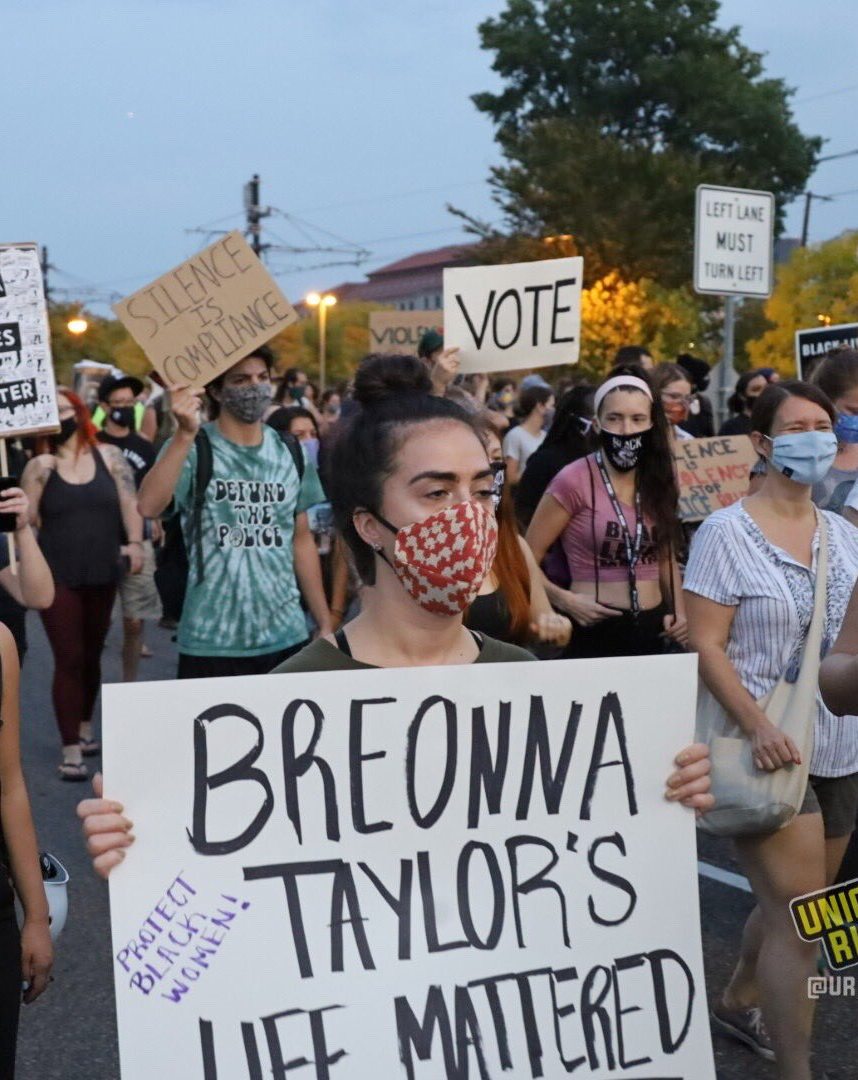 Breonna Taylor's
home was raided at about 12:40 am using a no-knock warrant obtained on
the basis of a police lie that she was involved in drugs. She was shot
six times in a hail of 32 bullets. The city settled a lawsuit for
"wrongful death" and gave the family $12 million. Despite all this,
Kentucky Attorney General Daniel Cameron presented a case construed in
such a manner that the grand jury was unable to indict. He added a
further affront, telling the millions of people across the country who
have been demanding justice and control over policing: "If we simply
act on outrage, there is no justice -- mob justice is not justice.
Justice sought by violence is not justice. It just becomes revenge."
Breonna Taylor's
home was raided at about 12:40 am using a no-knock warrant obtained on
the basis of a police lie that she was involved in drugs. She was shot
six times in a hail of 32 bullets. The city settled a lawsuit for
"wrongful death" and gave the family $12 million. Despite all this,
Kentucky Attorney General Daniel Cameron presented a case construed in
such a manner that the grand jury was unable to indict. He added a
further affront, telling the millions of people across the country who
have been demanding justice and control over policing: "If we simply
act on outrage, there is no justice -- mob justice is not justice.
Justice sought by violence is not justice. It just becomes revenge."
Grand jury proceedings are secret so whatever evidence was presented remains unknown. Police video footage and Taylor's autopsy are not public. There is no accountability whatsoever. What is known is the effort by the government to make it appear that it is the grand jury that is at fault for not indicting. They claim the state was providing "justice" by bringing the case to the grand jury.
Invariably, state governments present cases in such a way that police use of deadly force is considered "reasonable" and therefore legal. Despite the hail of bullets, it is said the police involved in Breonna's killing did not "intend" to kill anyone. In a similar case in Tampa Bay, Florida, African American Jonas Joseph was killed in his car in a military-like attack of 120 bullets by undercover police. No charges were filed. Police, as usual, claimed Joseph fired a gun, then changed their story repeatedly and finally admitted that he had not fired a gun.
Thousands marched in New York City, September 23, in two actions, one in Manhattan and another in Brooklyn. In Chicago, about 1,000 people marched on police headquarters. In Minneapolis, where actions continue to be organized to bring justice for George Floyd, more than 1,000 people rallied at the state capitol and marched for four hours, including briefly shutting down interstate highway I-94.
Thousands had marched on September 19 in a day of national action against government racism and repression.
In Tallahassee, Tampa Bay and Jacksonville, Florida, demonstrations against racist police killings and racial profiling and for community control of police took place. The demand for control, includes how community safety and security should be organized, along with hiring, firing, and powers to subpoena and charge -- not just an "advisory" board with no power, as is common.
Demonstrators in Tallahassee also demanded the release with no charges of the Tallahassee 19 (#Tally19), who were arrested at an action September 9. They condemned the government for the grand jury decisions not to charge police officers in three recent killings of civilians. Banners read: "Black Lives Matter," "Community Control of Police," and "Drop the Charges."
In Jacksonville, actions demanded control over the city budget and policing. About 40 per cent of the budget goes to police. They also demanded that laws which ensure police are not accountable for killings -- in the name of "reasonable" use of force and/or "fear" for their lives without any proof -- be eliminated. They too called for charges against the Tallahassee 19 to be dropped. In Tampa Bay a speaker summed up, "Enough is enough, we are fighting for Black and brown lives, for justice, and will continue to be out here until change takes place."
Similarly, the demonstration on September 19 of hundreds in Chicago, including an 80-car caravan, demanded control, removal of federal forces and "Tallahassee 19, drop all charges!"
 Dallas, Texas
also saw actions on September 19, including demands for control of the
city budget and policing. Organizers highlighted that Erin Nealey Cox,
U.S. Attorney for the Northern District of Texas, which includes
Dallas, has been named by President Trump as one of the leaders of the
Department of Justice's so-called "Antifa Task Force." Organizers
emphasized that the task force is charged with disrupting and silencing
the resistance, which is also the reason for the many thousands of
demonstrators being arrested and charged, some with felonies. Recent
targeted arrests include those of six leading organizers in Denver,
Colorado on September 17, meant to undermine September 19 actions. The
six organizers were arrested at their homes, in parking lots, and while
driving. They are facing trumped-up charges including "inciting a
riot," "kidnapping" and "theft."
Dallas, Texas
also saw actions on September 19, including demands for control of the
city budget and policing. Organizers highlighted that Erin Nealey Cox,
U.S. Attorney for the Northern District of Texas, which includes
Dallas, has been named by President Trump as one of the leaders of the
Department of Justice's so-called "Antifa Task Force." Organizers
emphasized that the task force is charged with disrupting and silencing
the resistance, which is also the reason for the many thousands of
demonstrators being arrested and charged, some with felonies. Recent
targeted arrests include those of six leading organizers in Denver,
Colorado on September 17, meant to undermine September 19 actions. The
six organizers were arrested at their homes, in parking lots, and while
driving. They are facing trumped-up charges including "inciting a
riot," "kidnapping" and "theft."
Ongoing actions in Louisville, Portland, Denver, Detroit, Tallahassee and all across the country, which have been met with brutal police repression and massive arrests, show clearly that all efforts to intimidate and silence the resistance are failing. The U.S. democracy has been revealed for the entire world to see, as tyranny, the very thing the much touted Constitution of the United States is said to prohibit. Indeed, the more government actions give official permission and provide impunity for racist police killings, the more evident it becomes that it is the people's own efforts and struggle for empowerment and equality that provides solutions. Everywhere the stand is that resistance will continue until change that favours the people takes place.
Millions Petition Kentucky Governor for Justice
Petition to Andy Beshear, Governor of Kentucky:
Breonna Taylor was an award-winning EMT and model citizen. She loved her family and community, working at two hospitals as an essential worker during the pandemic.
Over six months ago, a division of the Louisville Police Department [LMPD] performed an illegal, unannounced drug raid on her home, executing a no-knock warrant. Not a single officer announced themselves before ramming down her door and firing 22 shots, shooting Breonna six times, killing her, according to her lawyer, boyfriend, neighbours, and relatives.
Named on the warrant was Jamarcus Glover, who had already been arrested earlier that day. Officer Joshua Jaynes lied to obtain a no-knock warrant on Breonna's residence, citing that the U.S. Postmaster had claimed that Breonna was receiving illegal packages at her home -- the U.S. Postmaster later testified that he had never verified these claims.
Police were dressed in plainclothes when they knocked Breonna's door down in the middle of the night; Kenneth Walker, her boyfriend, fired a single shot, believing that someone had broken in. In response, the officers fired multiple rounds, killing Breonna.
No one has been held accountable for the systemic failure that caused Breonna's death.
1. Charges must be filed immediately. The officers involved, specifically John Mattingly, Brett Hankison, Myles Cosgrove, Joshua Jaynes, and any other law enforcement officer involved in the death and coverup of the death of Breonna Taylor must be fired, charged, and arrested immediately. There have been no charges thus far (it has been over six months). Their pensions must be revoked.
2. Her family must be paid in damages for wrongful death and the negligence of the LMPD.
3. Kentucky Governor Andy Beshear must speak up on behalf of Breonna, and Governor Beshear or Attorney General Daniel Cameron must appoint a special prosecutor to investigate the Louisville Police Department immediately. An in-house investigation is unacceptable.
4. The "no-knock" warrant that police had used in Breonna's murder completely violates the constitutional rights to reasonable search and seizure. By law, police must be legally obligated to announce themselves before breaking and entering into a home privately owned by American civilians. Legislation to federally ban no-knock warrants must be passed in Congress and signed by the President; what happened to Breonna was a complete violation of her constitutional rights, and threatens the rights of all American citizens. Senator Rand Paul of Kentucky has voiced similar concerns. A special session must be intervened by Congress to discuss the constitutionality of no-knock warrants immediately.
This has carried on for over four months. For weeks, the city treated Breonna like she was a criminal, calling her a "suspect" before finally admitting that she was an innocent, crimeless victim. She had no drugs. She committed no crime.
Yet, she is dead, and the perpetrators are facing no charges.
She was not only an exemplary citizen, but an essential one. She was a daughter, a friend, an American hero, and most importantly, a person. She deserved to be treated as such.
Let's get justice for Breonna. Say her name.
More than 11,336,700 people have signed the petition here.
Note
The City of Louisville recently provided the family with $12 million in a wrongful death suit. The family said money is not enough and stand with demonstrators demanding criminal charges. A total of 32 shots were fired, 22 inside the house and another 10 from outside, through a window with blinds drawn.
Actions Across the Country
Louisville, Kentucky
Seattle, Washington
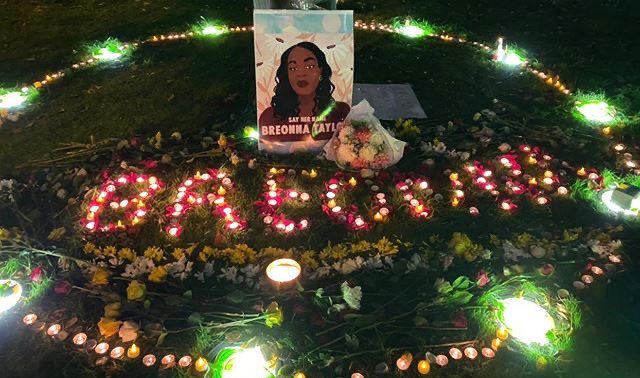

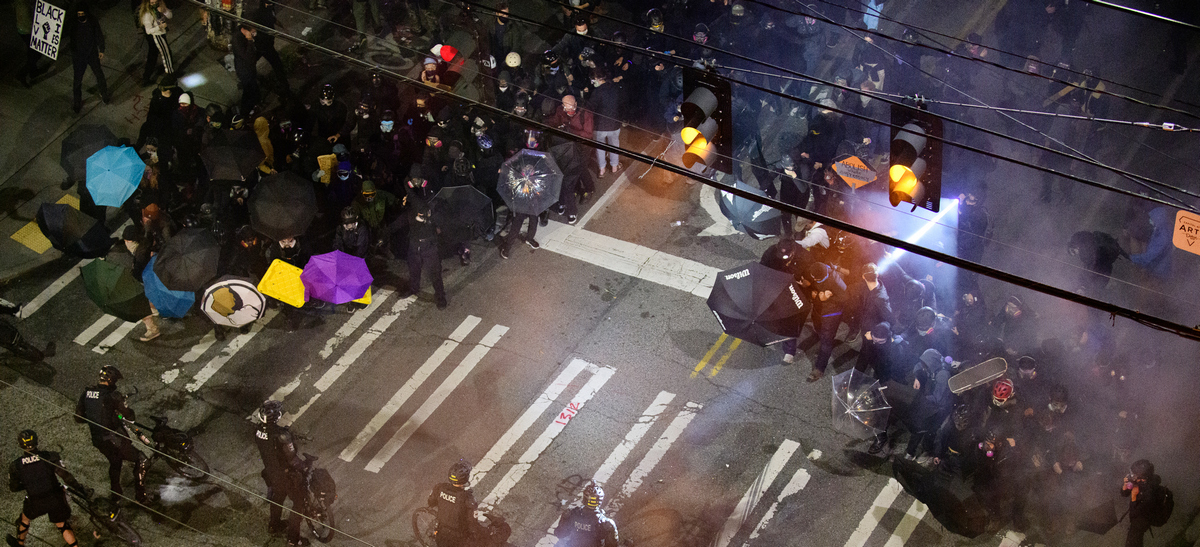
Portland, Oregon
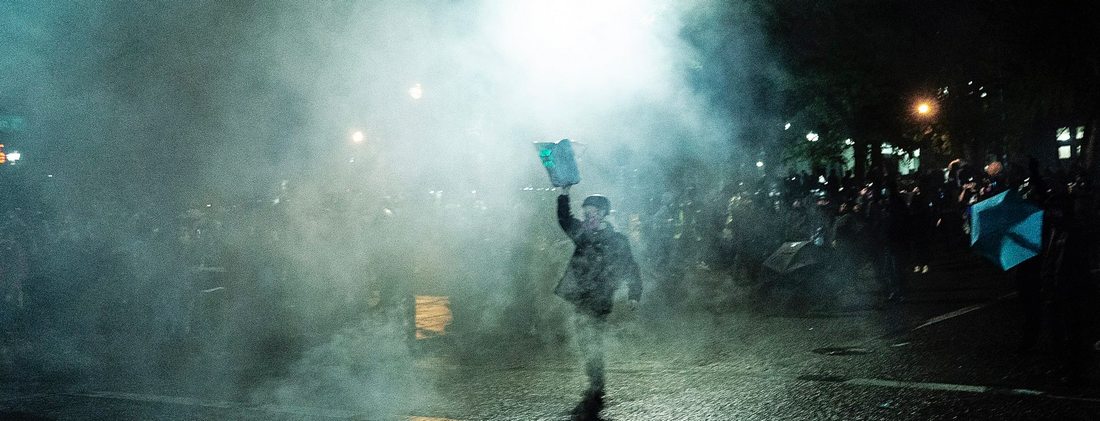
Santa Rosa,
California
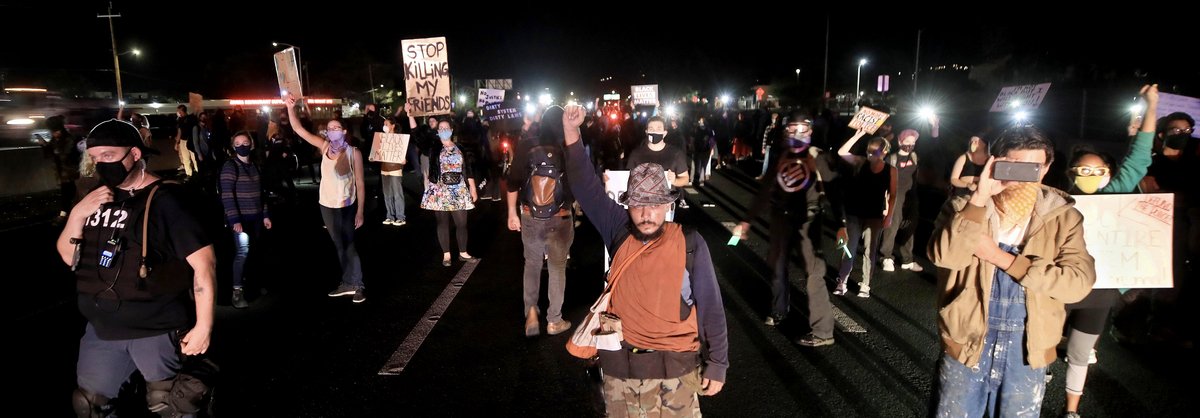
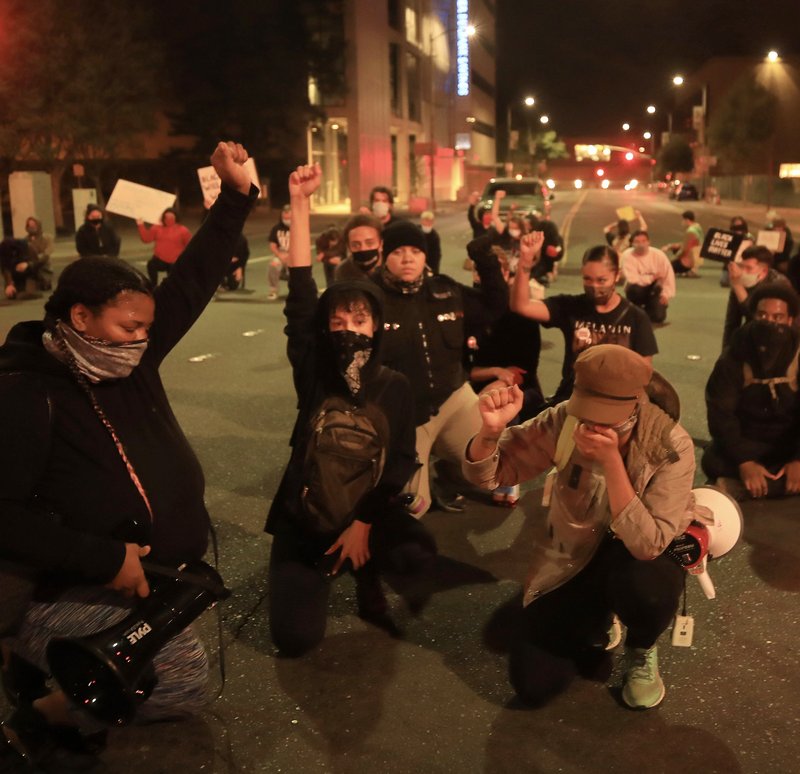
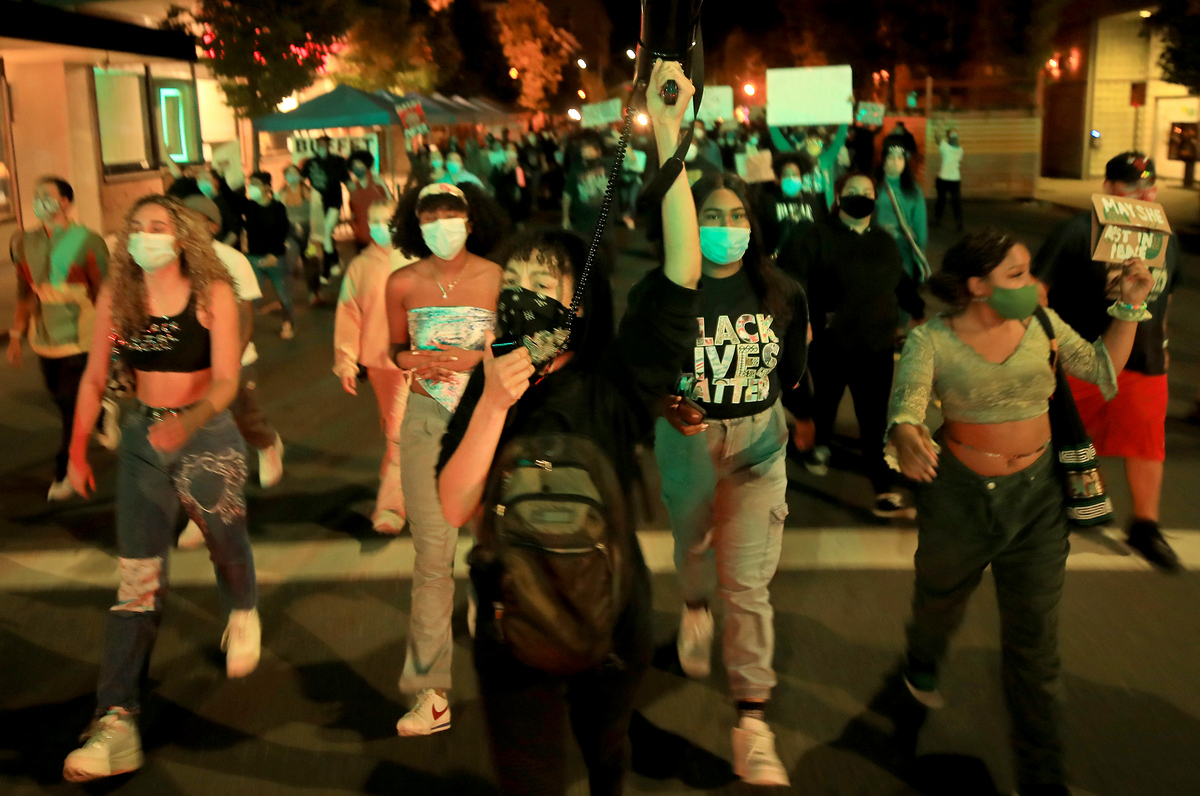
Oakland, California
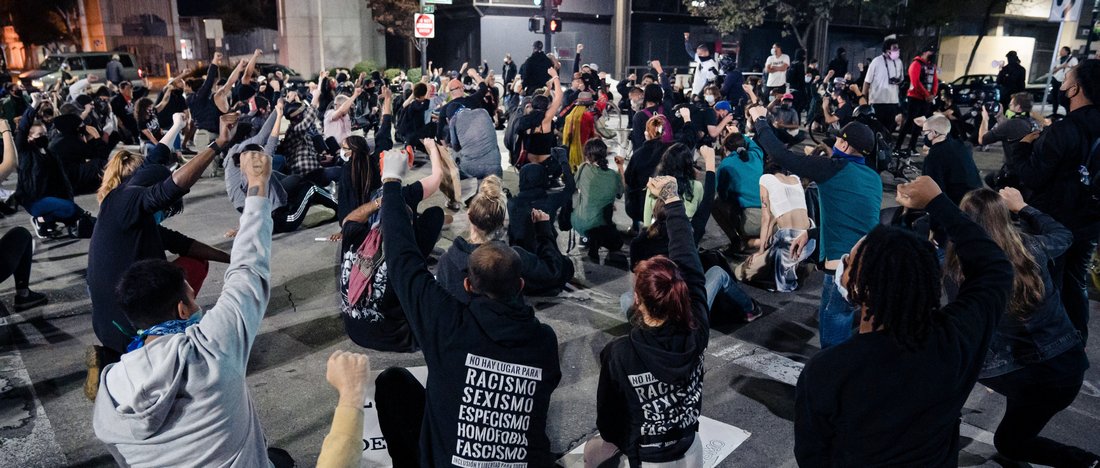
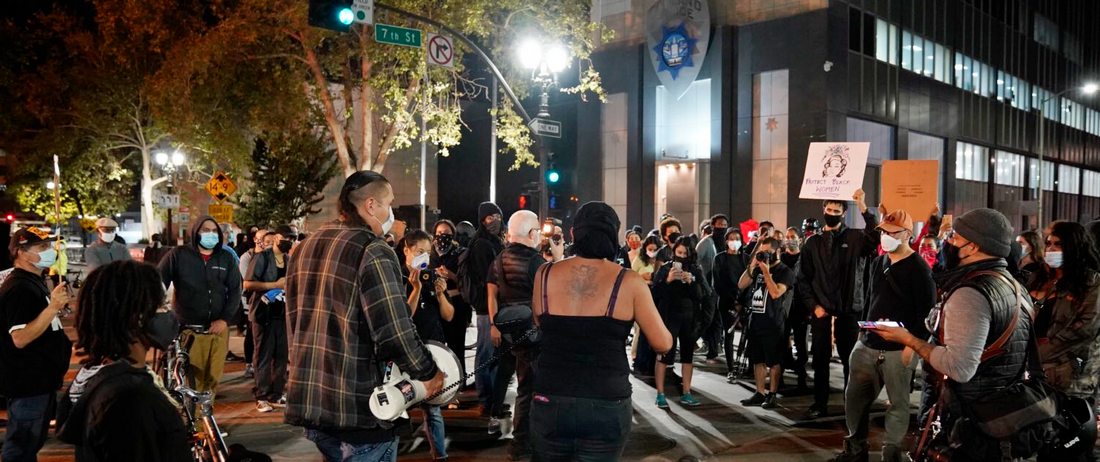
Los Angeles, California


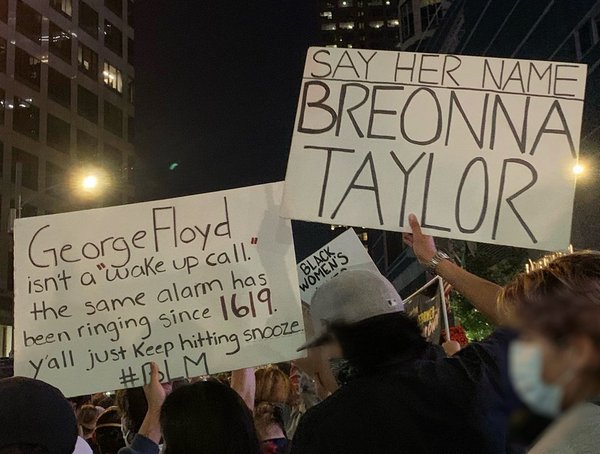
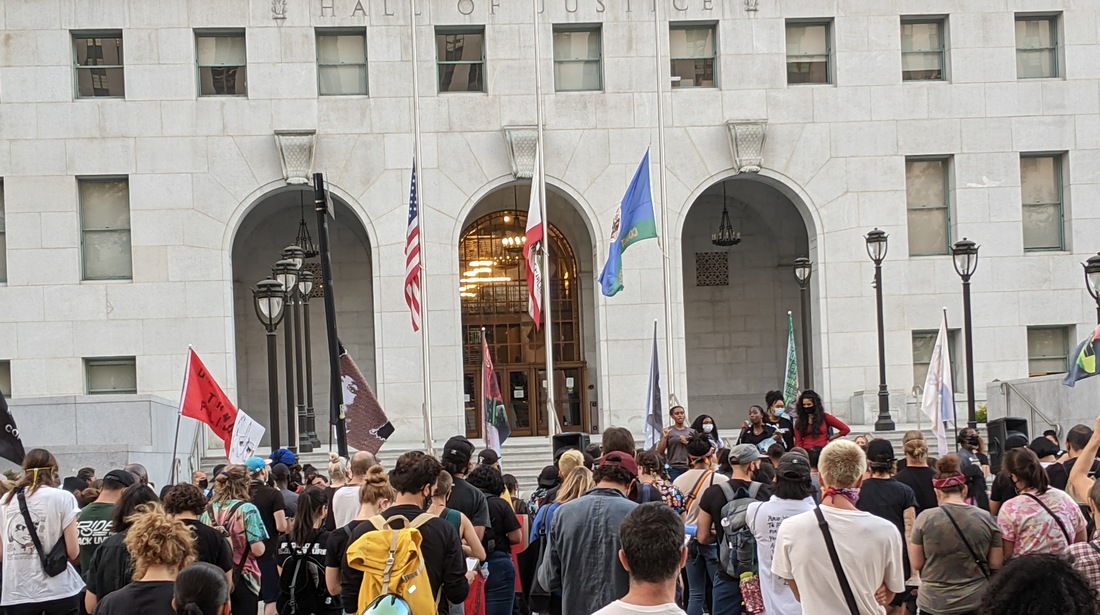
San Diego, California
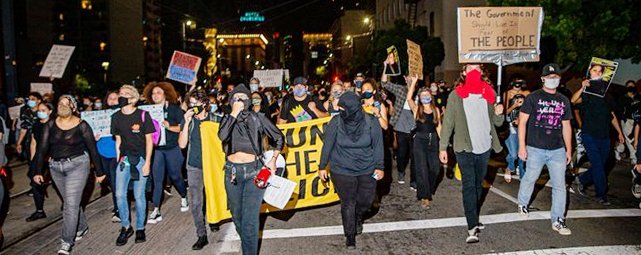
Phoenix, Arizona
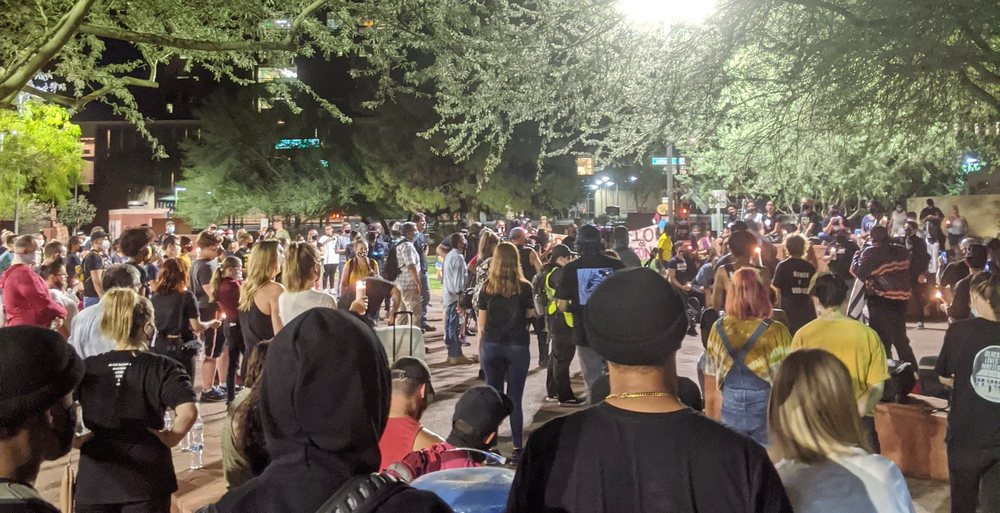
Denver,
Colorado
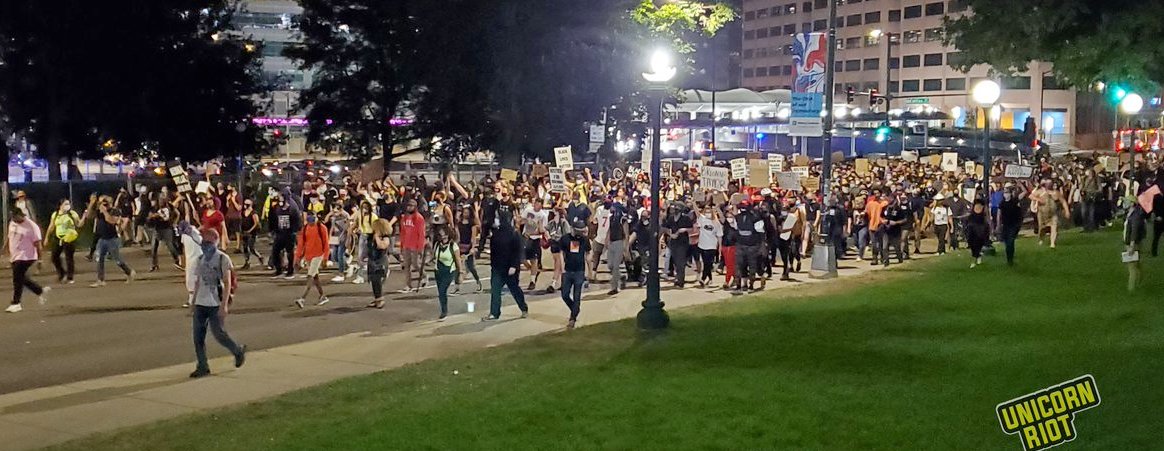
Tulsa,
Oklahoma

Dallas, Texas
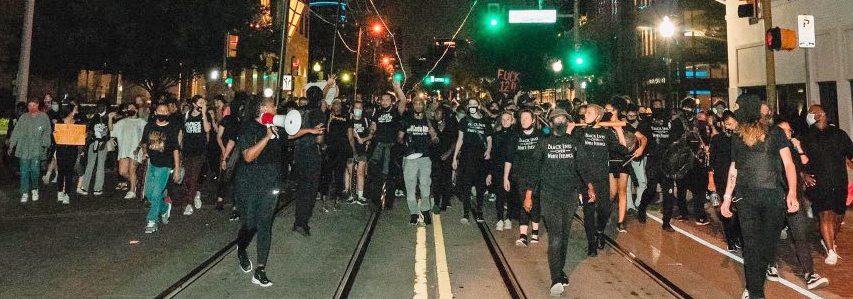

St. Paul,
Minnesota
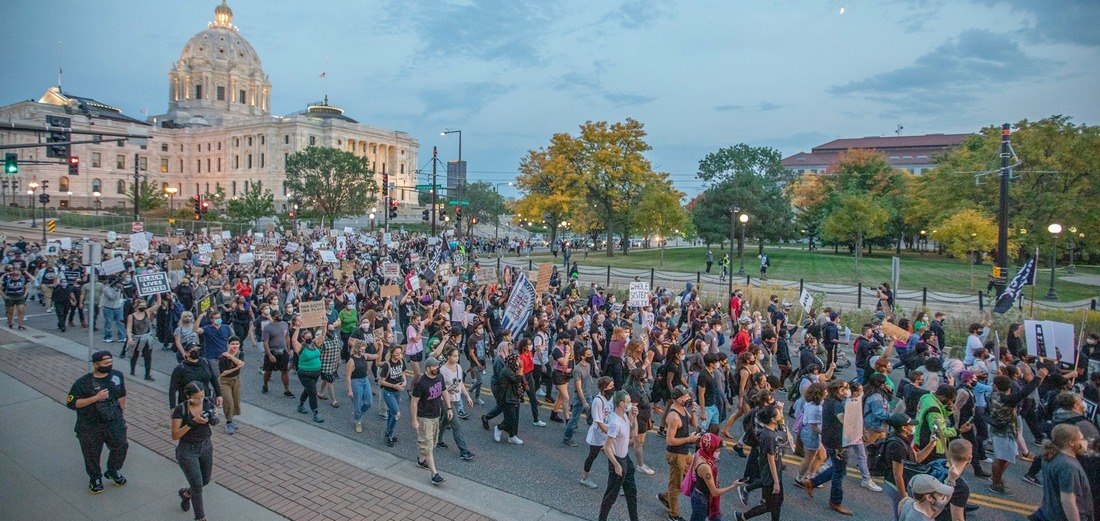
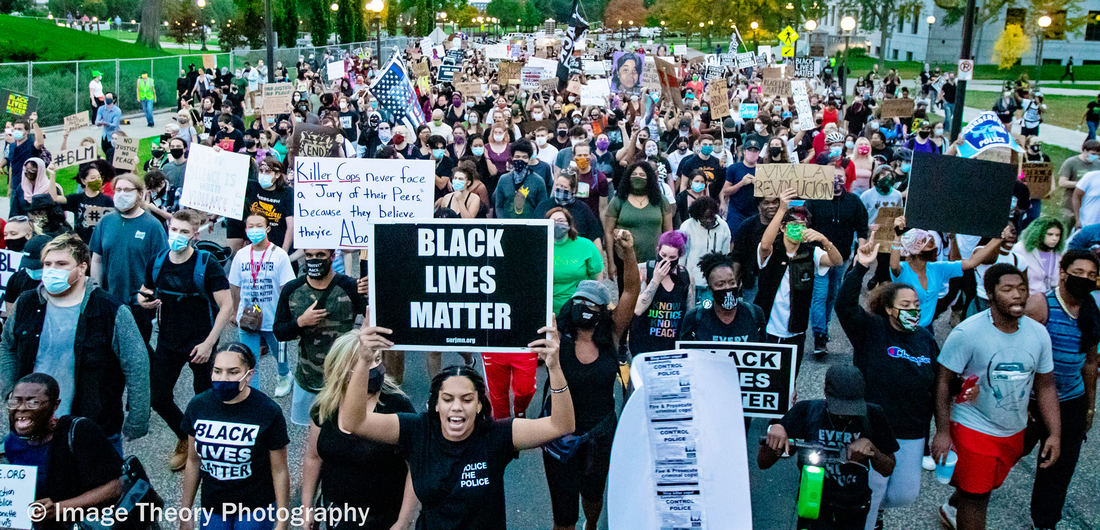
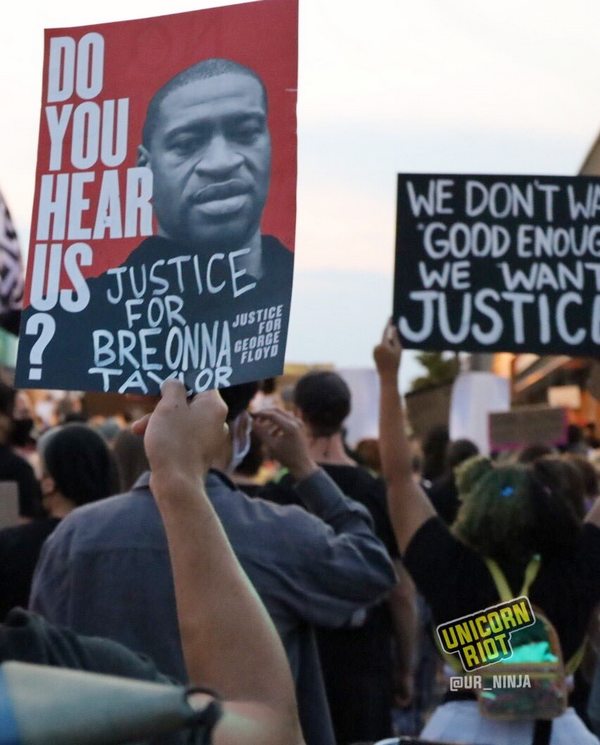

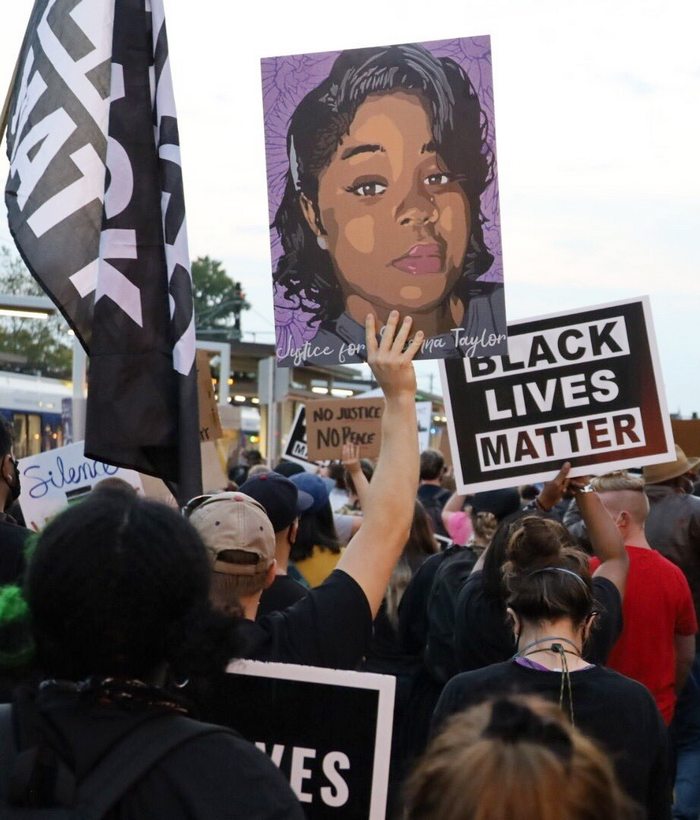
Mankato, Minnesota

Cedar Falls,
Iowa

Kansas
City, Missouri
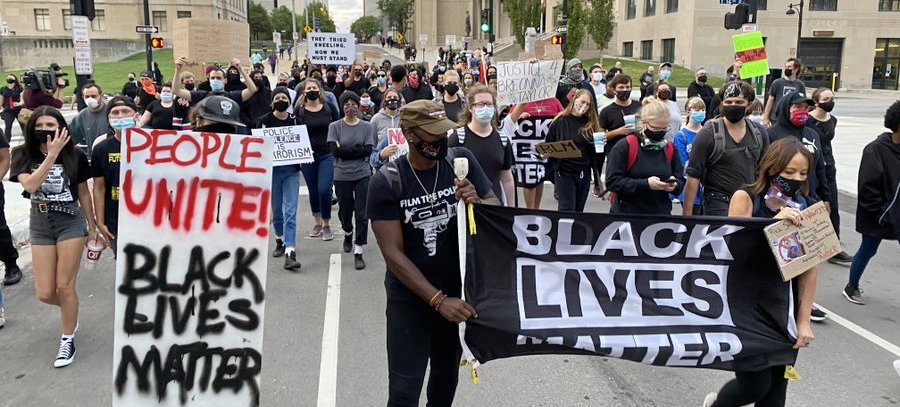
Arkansas
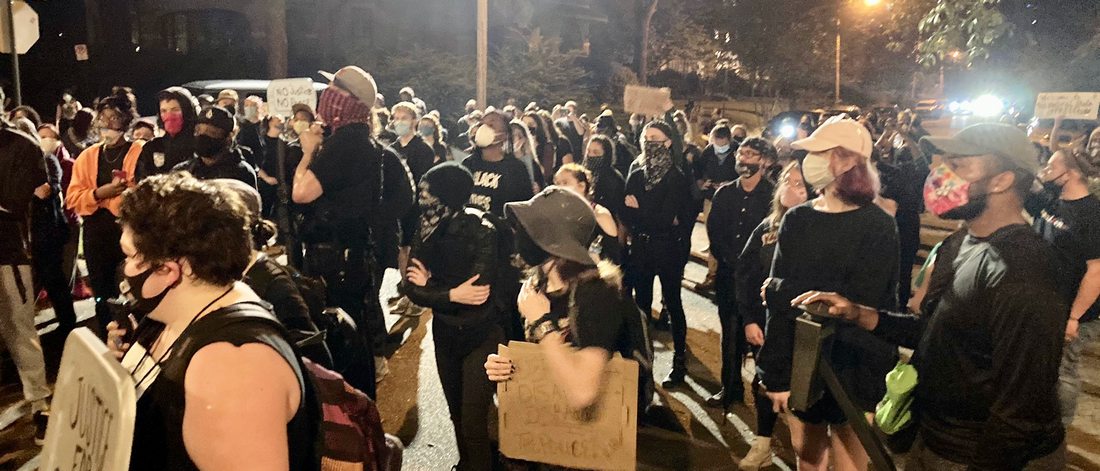
Chicago,
Illinois
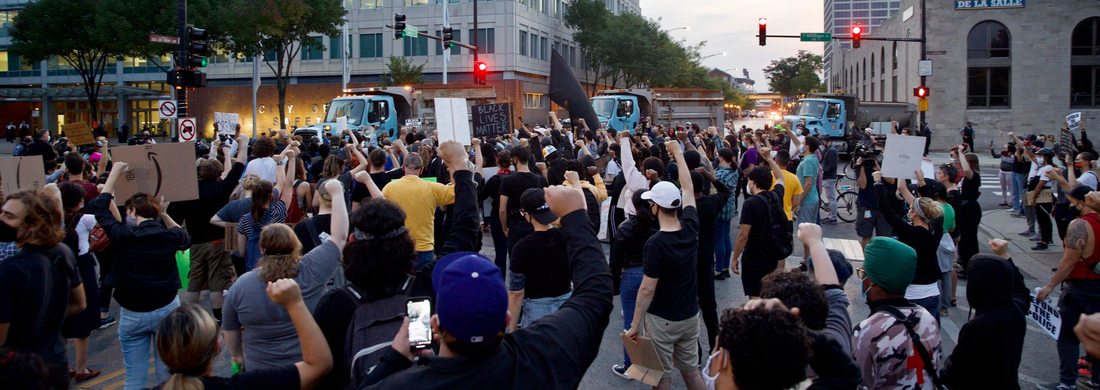

Columbus, Ohio
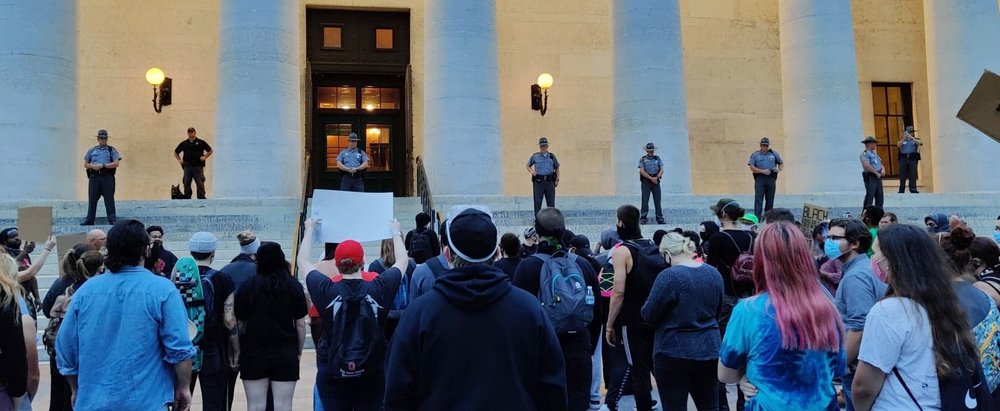
Nashville, Tennessee

Richmond, Virginia
Charleston, South Carolina

Atlanta,
Georgia
New Haven, Connecticut
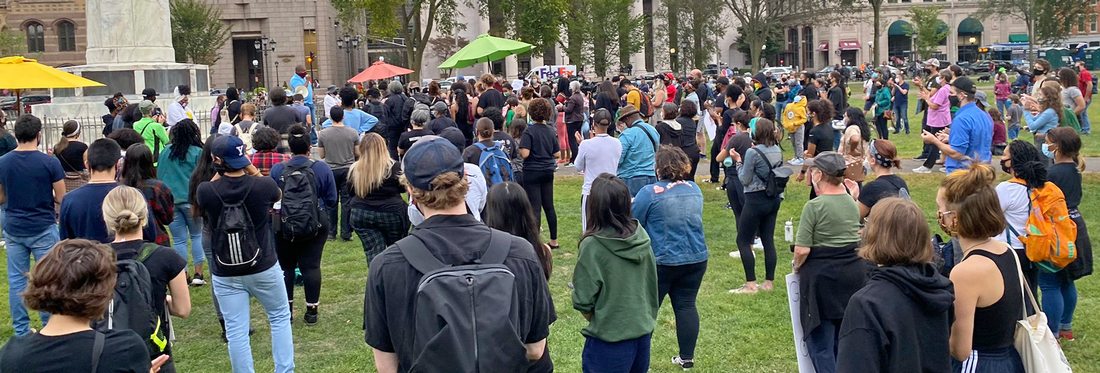
Providence,
Rhode Island

Baltimore,
Maryland
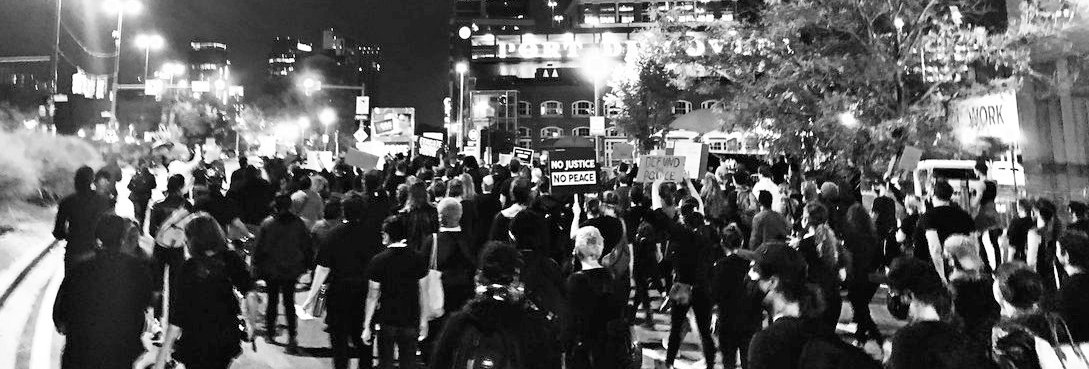
Albany, New York

New York City, New York
Washington,
DC
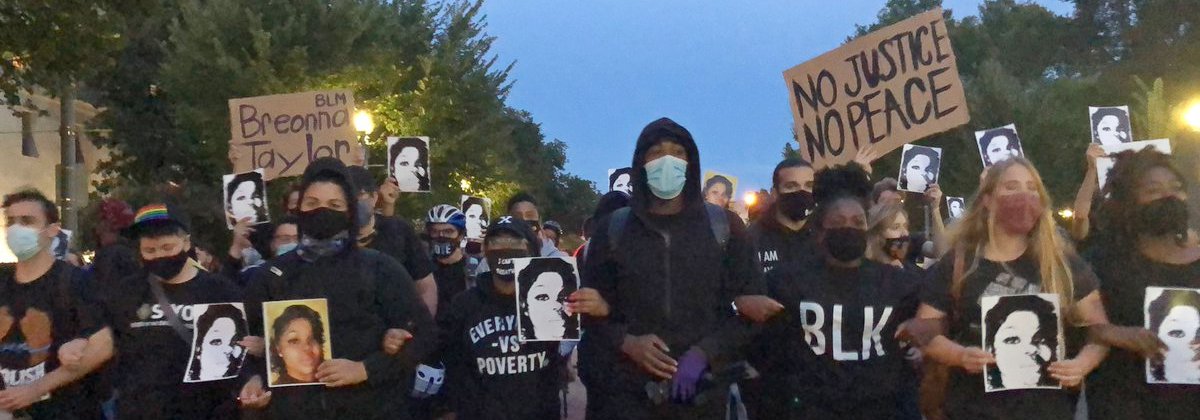
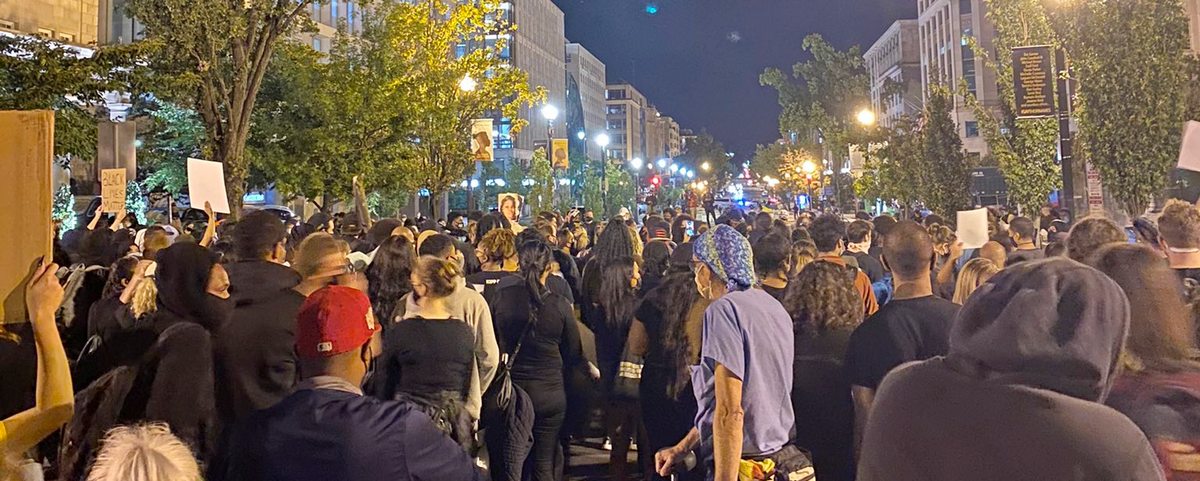

Photos: ajplus, Tayvan_mpowered, Unicorn Riot, Troubadors Divine B, B. Holton, monsieree, number stn 1312, mmitgang, gravemorgan, Eli_green1, K. Porter, R. Morrison, J. Aponte, Anti-Police Terror, Burns Alive, S. Devol, C. Sprague, E. Herrera, K. Manson, Anti-Ascist Tulsa, T. Hodges, Feature Dallas, C. Juhn Photo, K. Ericson, Triple Falls, University of Iowa, KCURU, M. Hayes, Vashon Photo, Columbus Socialist Alternative, C. Taylor, Marshian, A. Kellerman, W.C., M. Quaye, Whats Going on in RI, B. Young Savage, R. Eaton, K. Manush, J. Loving, A. Tevelow.)
(To access articles individually click on the black headline.)
Website: www.cpcml.ca Email: editor@cpcml.ca
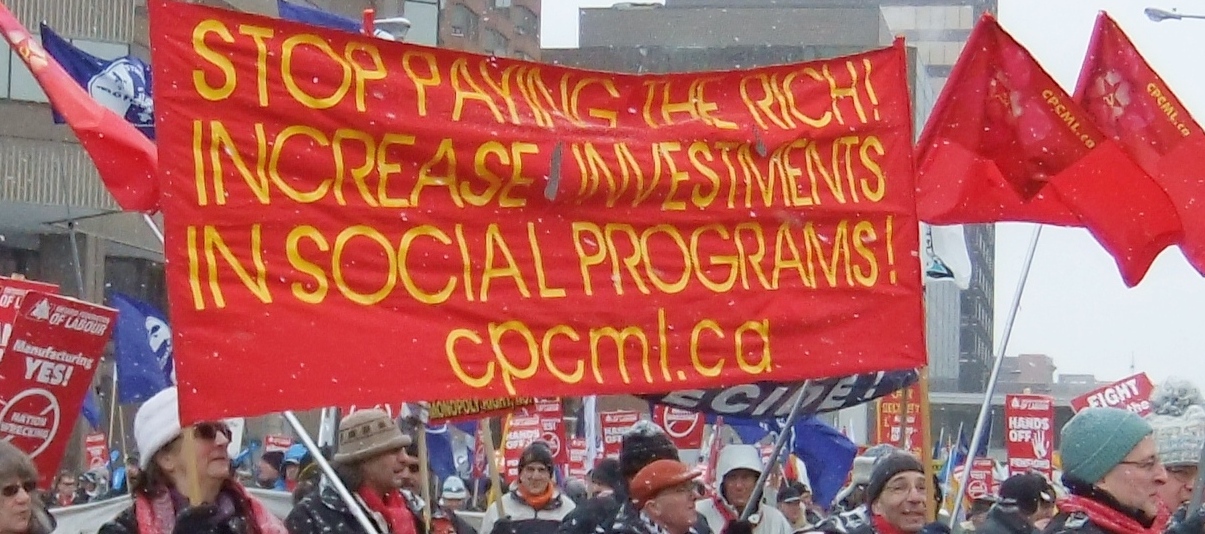
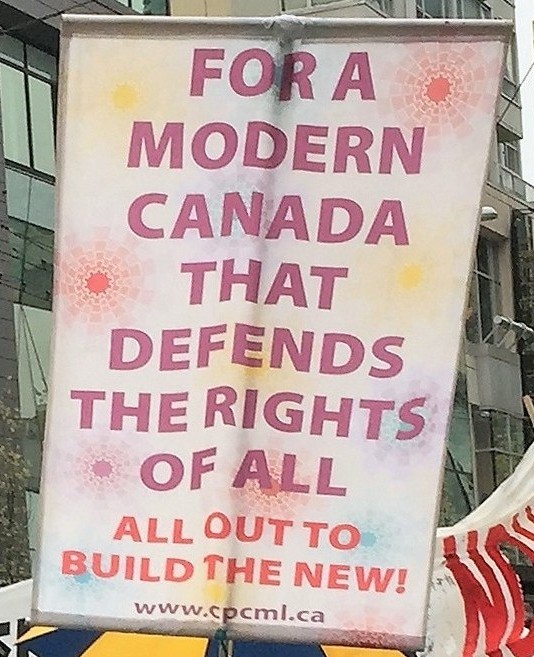 The Throne Speech
uses a pretense of the highest of ideals to step into the arena of
direct involvement in delivery of social programs of various types to
obscure that the door is being opened to restructuring of the
power-sharing arrangements of the Canadian state to open space for the
most powerful oligarchs globally to move in. It underscores once again
that the anti-social offensive is not a matter of bad policy or bad
politicians. It is a matter of restructuring the state according to the
interests of the most powerful imperialist oligarchs. The fight in
their ranks that we see raging in the U.S. over who captures the
presidency is playing out here in Canada too. In a society whose
economy runs on the basis of the state paying the rich, the winners are
the imperialist oligarchs who make sure they come out on top, on the
receiving end, through the restructuring of the state according to
their interests.
The Throne Speech
uses a pretense of the highest of ideals to step into the arena of
direct involvement in delivery of social programs of various types to
obscure that the door is being opened to restructuring of the
power-sharing arrangements of the Canadian state to open space for the
most powerful oligarchs globally to move in. It underscores once again
that the anti-social offensive is not a matter of bad policy or bad
politicians. It is a matter of restructuring the state according to the
interests of the most powerful imperialist oligarchs. The fight in
their ranks that we see raging in the U.S. over who captures the
presidency is playing out here in Canada too. In a society whose
economy runs on the basis of the state paying the rich, the winners are
the imperialist oligarchs who make sure they come out on top, on the
receiving end, through the restructuring of the state according to
their interests.
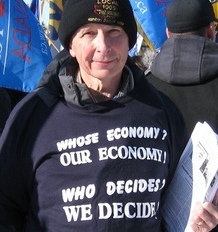 "This is not the
time for austerity. Canada entered this crisis in the best fiscal
position of its peers. And the government is using that fiscal
firepower, on things like the Canada Emergency Response Benefit and the
Canada Emergency Wage Subsidy, so that Canadians, businesses, and our
entire economy have the support needed to weather the storm. Canadians
should not have to choose between health and their job, just like
Canadians should not have to take on debt that their government can
better shoulder [...] This government will preserve Canada's fiscal
advantage and continue to be guided by values of sustainability and
prudence."
"This is not the
time for austerity. Canada entered this crisis in the best fiscal
position of its peers. And the government is using that fiscal
firepower, on things like the Canada Emergency Response Benefit and the
Canada Emergency Wage Subsidy, so that Canadians, businesses, and our
entire economy have the support needed to weather the storm. Canadians
should not have to choose between health and their job, just like
Canadians should not have to take on debt that their government can
better shoulder [...] This government will preserve Canada's fiscal
advantage and continue to be guided by values of sustainability and
prudence." Thank you very
much say the oligarchs in control of the Silver Hotel Group, which owns
20 hotels in Canada, including Hilton, Delta and Novotel locations in
major cities. Hotel operators are amongst the biggest abusers of the
Canadian working class. Deepak Ruparell, President of Silver Hotel
Group, said of the extension of the wage subsidy program: "It's a big
relief because that means we can continue to operate. If that wasn't
there, we would be looking at laying off more people and shutting it
down."
Thank you very
much say the oligarchs in control of the Silver Hotel Group, which owns
20 hotels in Canada, including Hilton, Delta and Novotel locations in
major cities. Hotel operators are amongst the biggest abusers of the
Canadian working class. Deepak Ruparell, President of Silver Hotel
Group, said of the extension of the wage subsidy program: "It's a big
relief because that means we can continue to operate. If that wasn't
there, we would be looking at laying off more people and shutting it
down."

